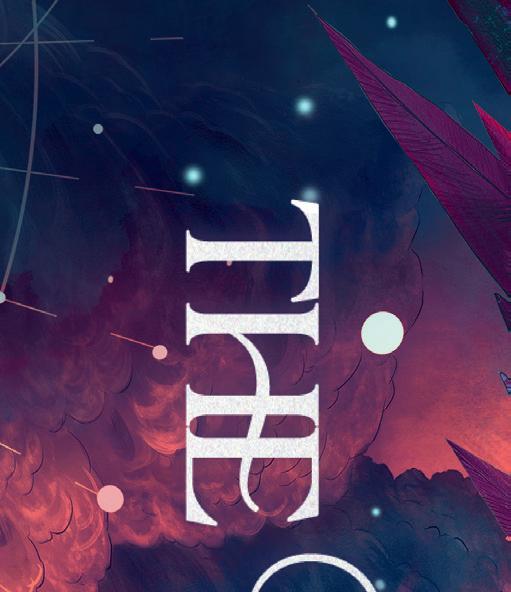
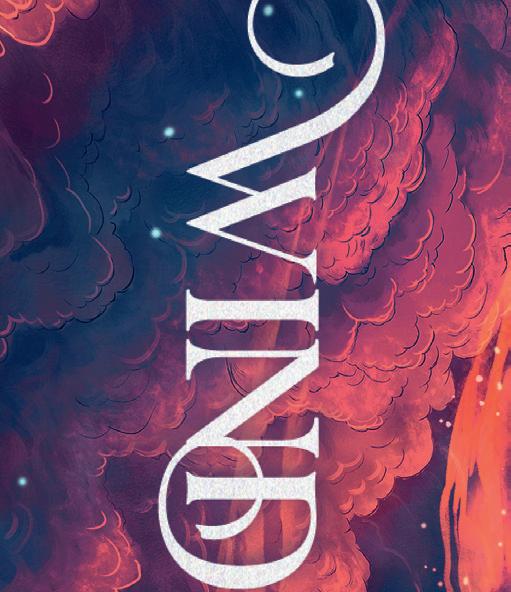
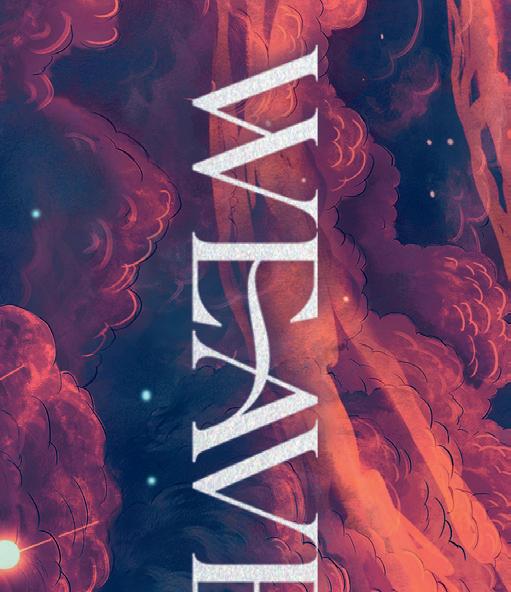
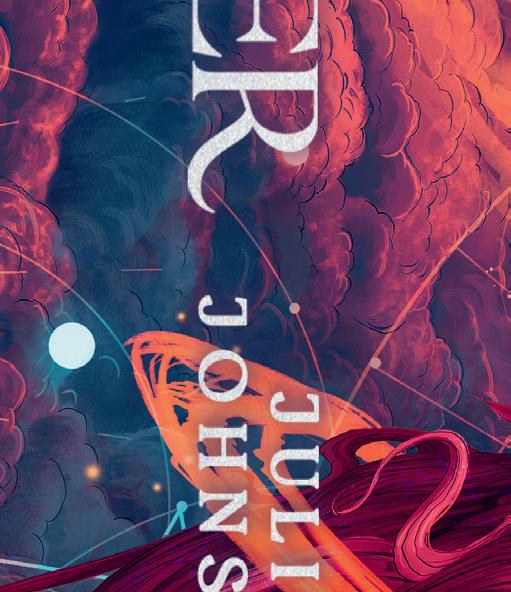
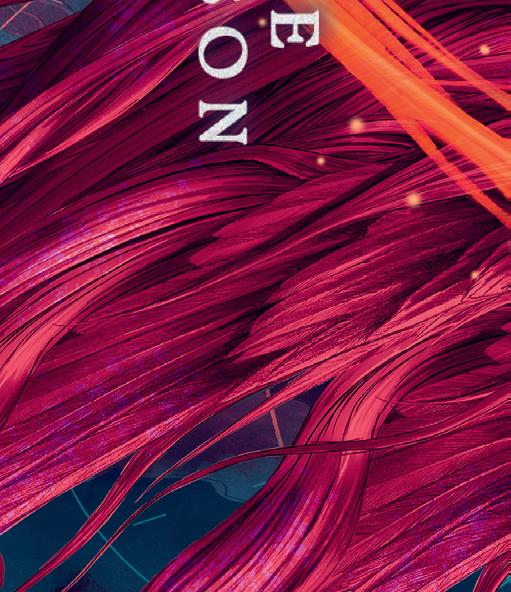
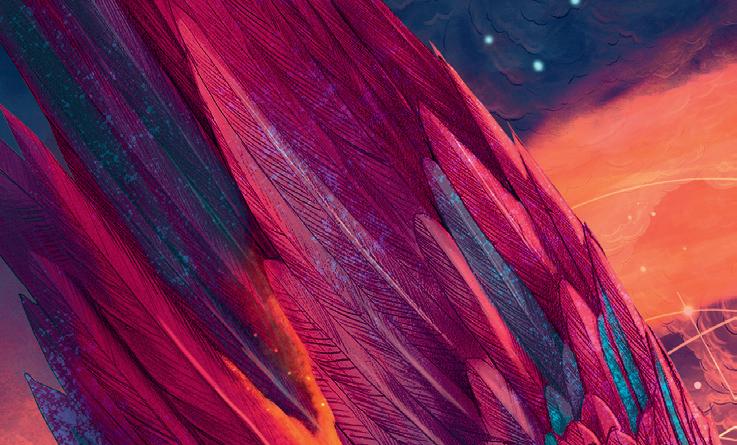
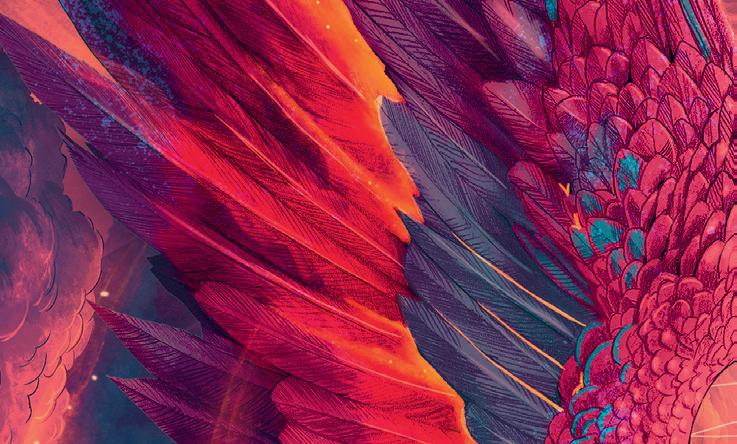
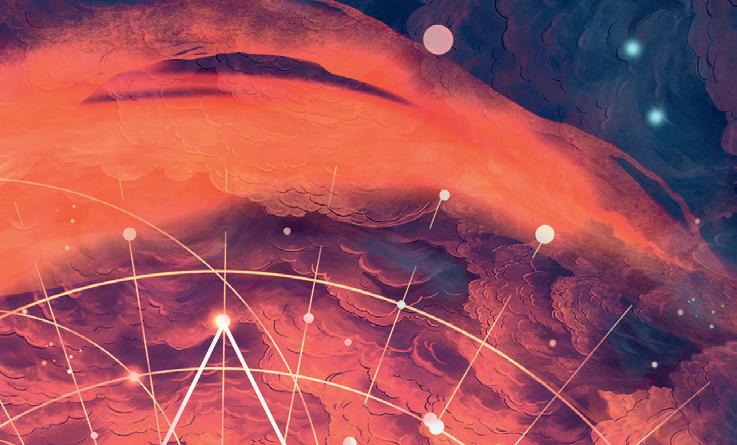
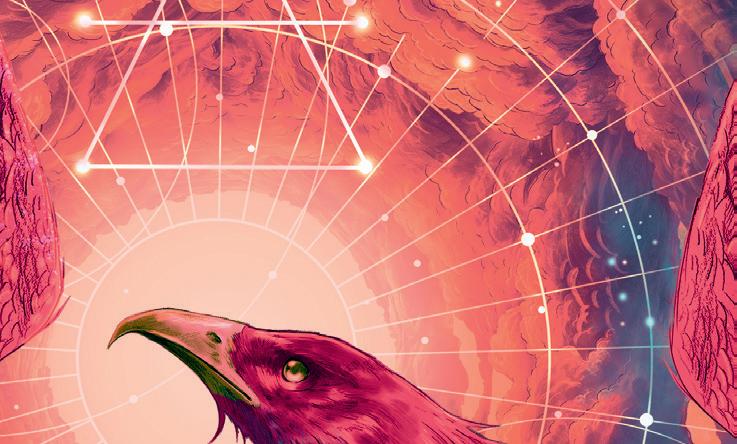

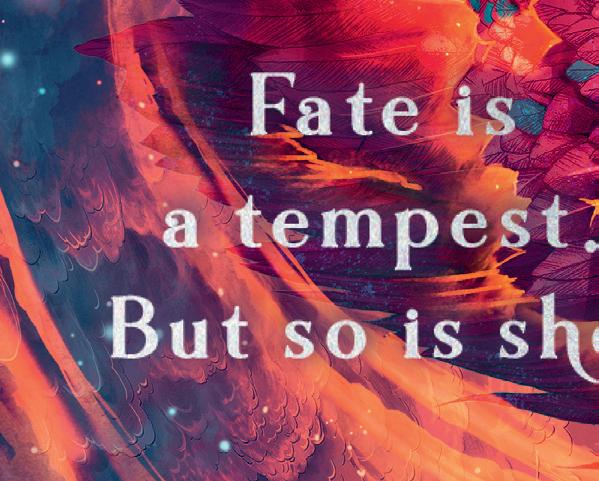
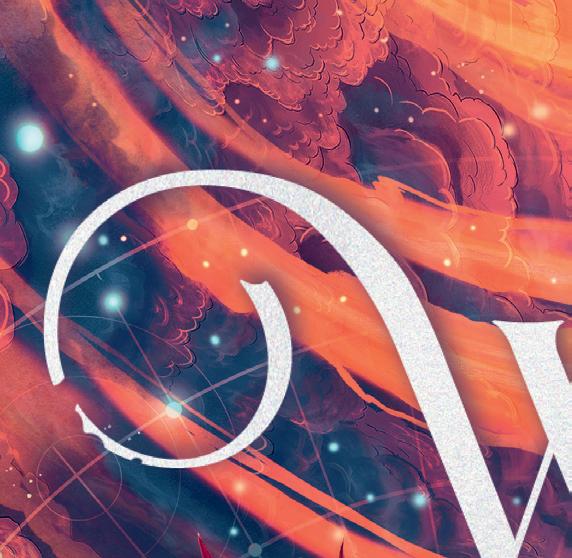
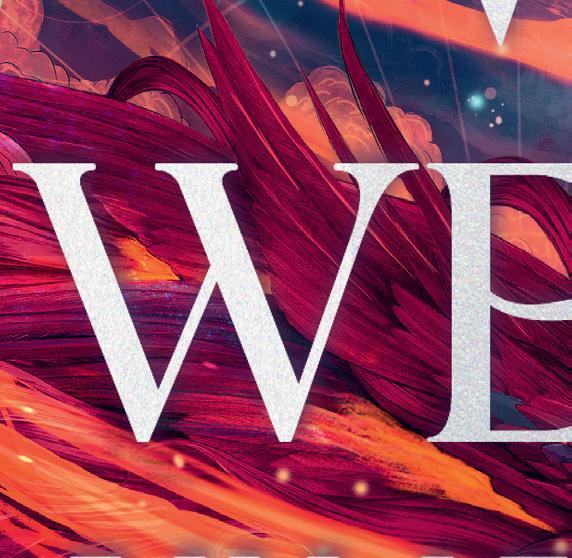

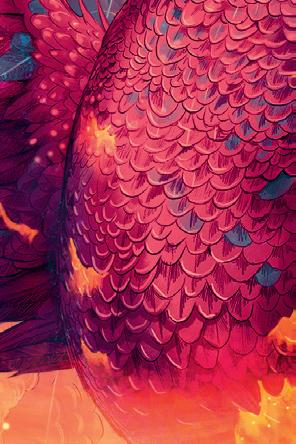
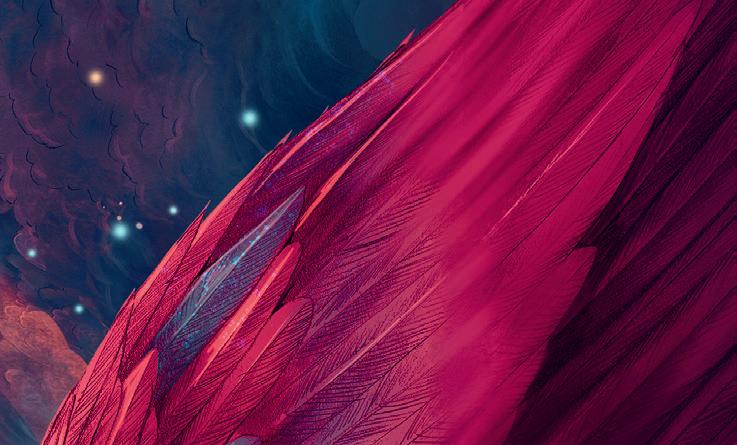
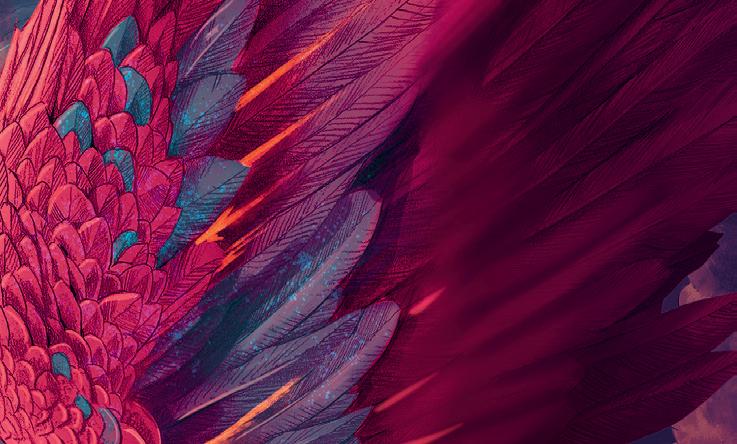
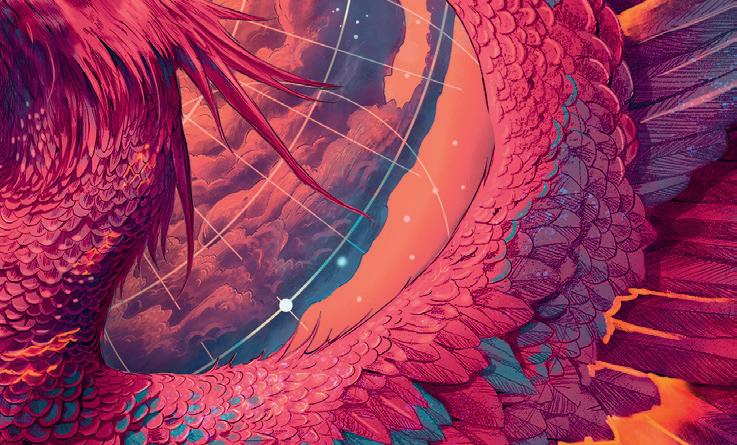
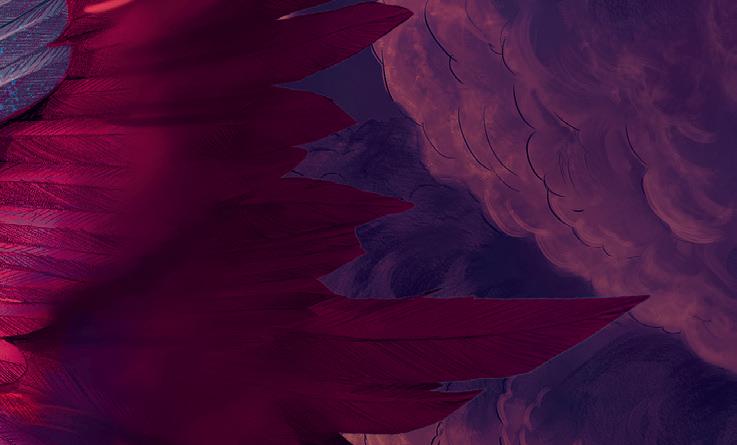

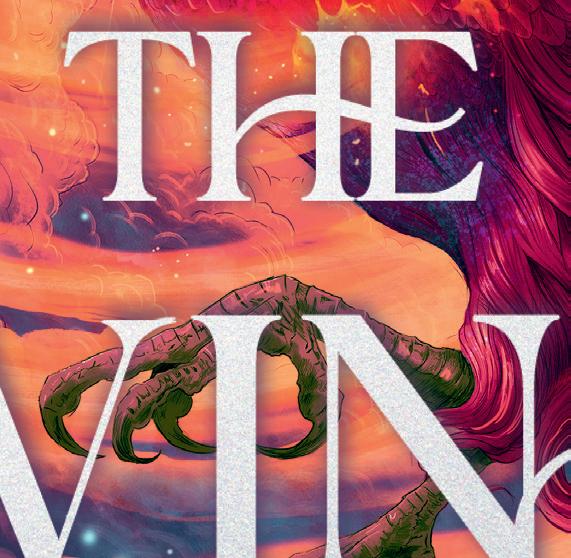
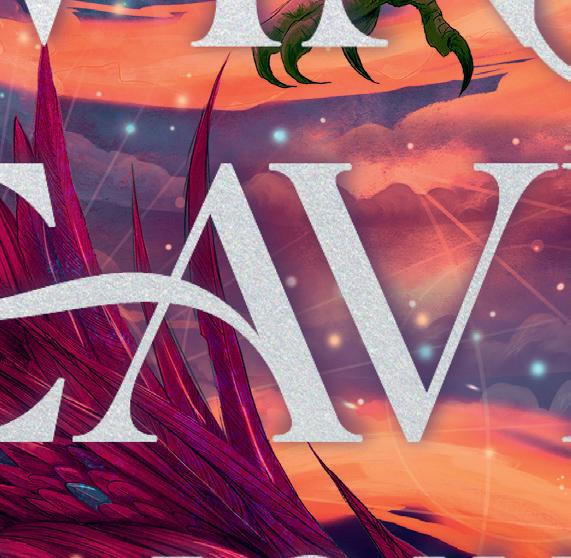

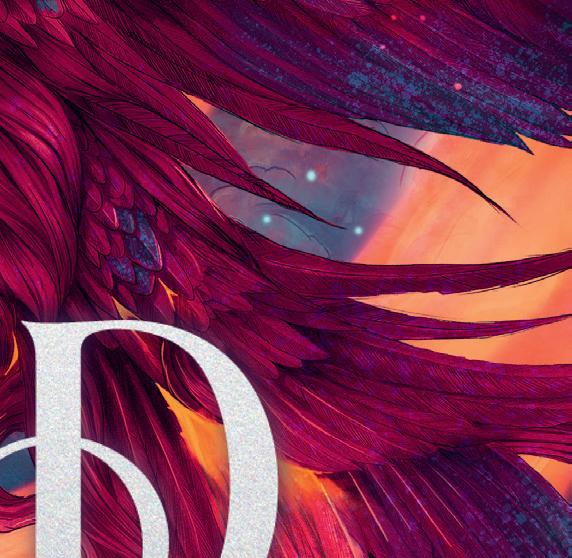
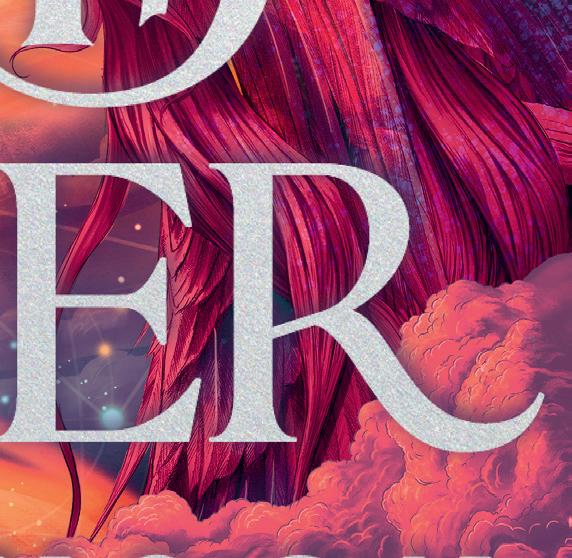

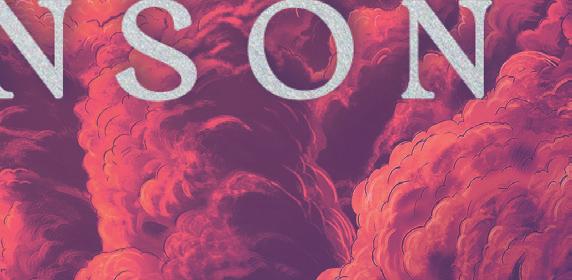
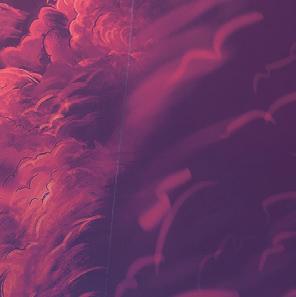





























PENGUIN MICHAEL JOSEPH
UK | USA | Canada | Ireland | Australia
India | New Zealand | South Africa
Penguin Michael Joseph is part of the Penguin Random House group of companies whose addresses can be found at global.penguinrandomhouse.com
Penguin Random House UK ,
One Embassy Gardens, 8 Viaduct Gardens, London SW 11 7BW penguin.co.uk
First published in the United States of America by Berkley, an imprint of Penguin Random House LLC 2025
First published in Great Britian by Penguin Michael Joseph 2025 001
Copyright © Julie Johnson, 2025
The moral right of the author has been asserted Penguin Random House values and supports copyright. Copyright fuels creativity, encourages diverse voices, promotes freedom of expression and supports a vibrant culture. Thank you for purchasing an authorized edition of this book and for respecting intellectual property laws by not reproducing, scanning or distributing any part of it by any means without permission. You are supporting authors and enabling Penguin Random House to continue to publish books for everyone. No part of this book may be used or reproduced in any manner for the purpose of training artificial intelligence technologies or systems. In accordance with Article 4(3) of the DSM Directive 2019/790, Penguin Random House expressly reserves this work from the text and data mining exception
Book design by Alison Cnockaert
Map designed by Julie Johnson and Alison Cnockaert
Title page art: Four elements © mountain beetle / Shutterstock
Typeset by Jouve (UK ), Milton Keynes
Printed and bound in Great Britain by Clays Ltd, Elcograf S.p.A.
The authorized representative in the EEA is Penguin Random House Ireland, Morrison Chambers, 32 Nassau Street, Dublin D02 YH 68
A CIP catalogue record for this book is available from the British Library
HARDBACK ISBN: 978–0–241–69473–2
TRADE PAPERBACK ISBN: 978–0–241–69474–9
Penguin Random House is committed to a sustainable future for our business, our readers and our planet. This book is made from Forest Stewardship Council® certified paper.
To Stevie Nicks, for writing the song “Rhiannon.”
Without its inspiration, Rhya Fleetwood—this book’s main character—would not exist.
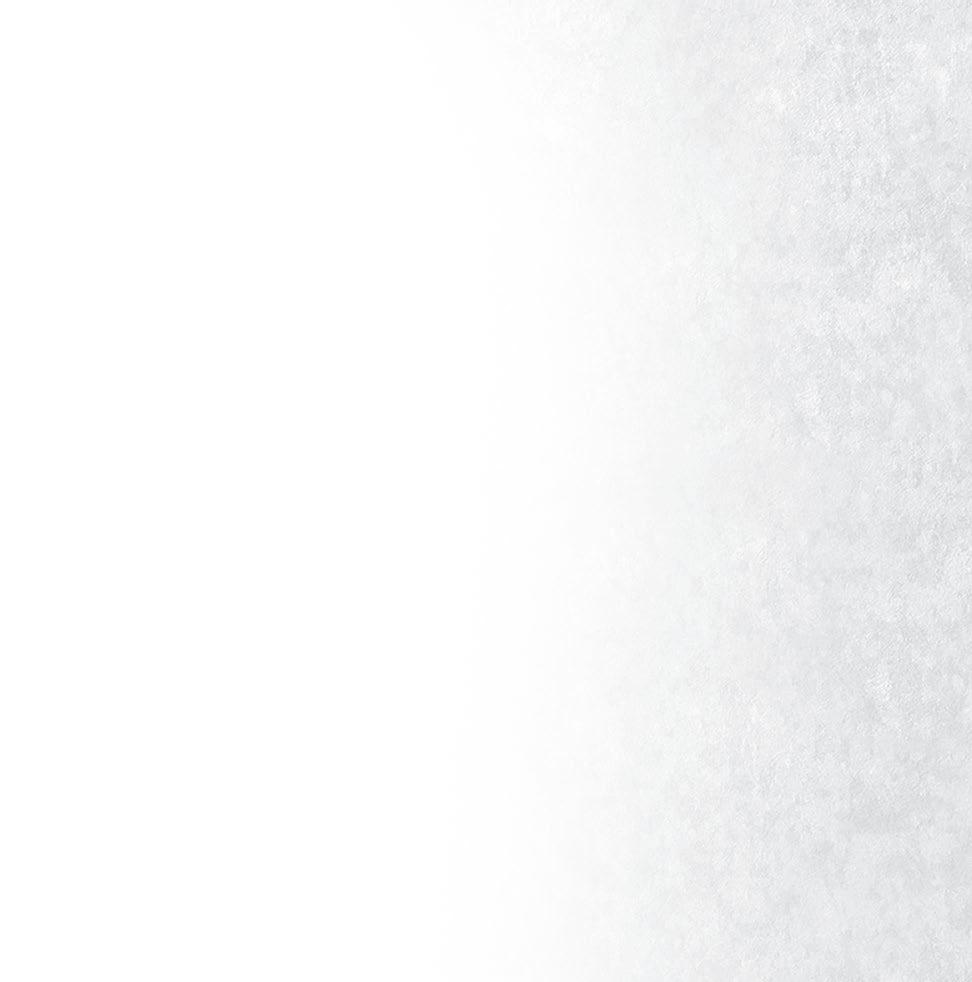
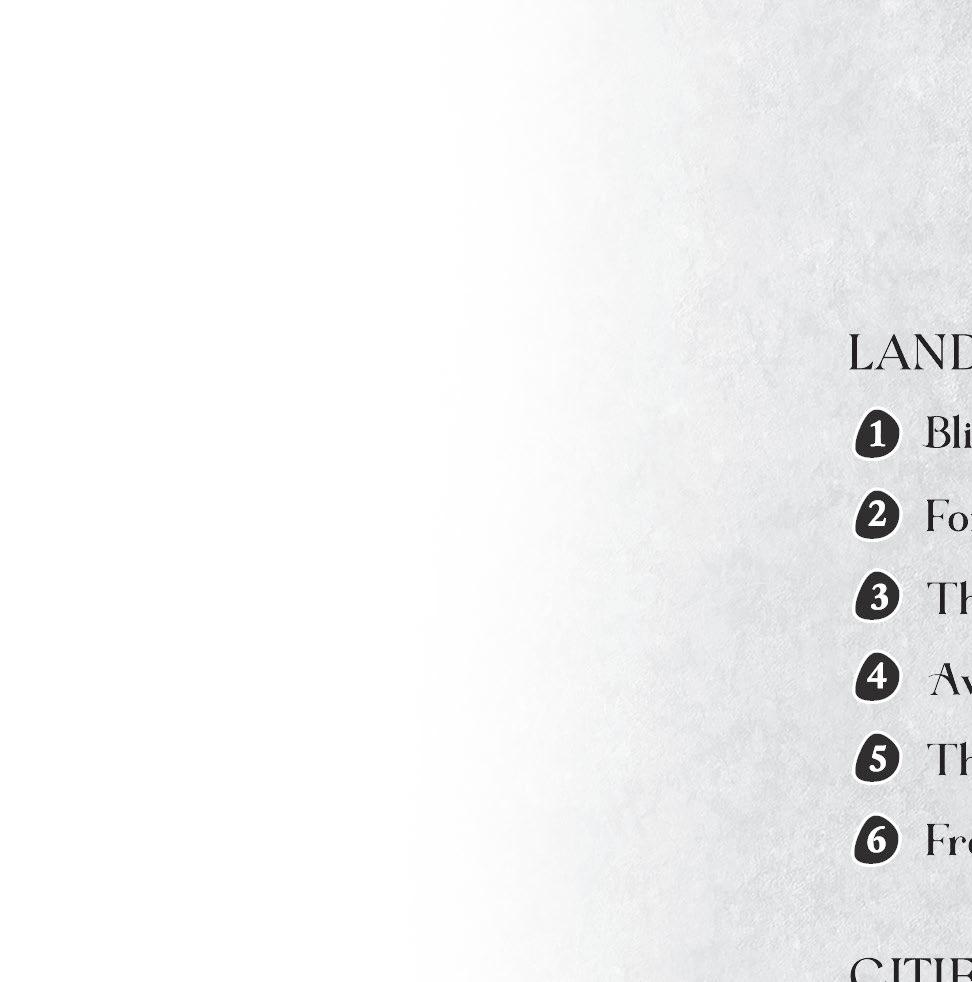
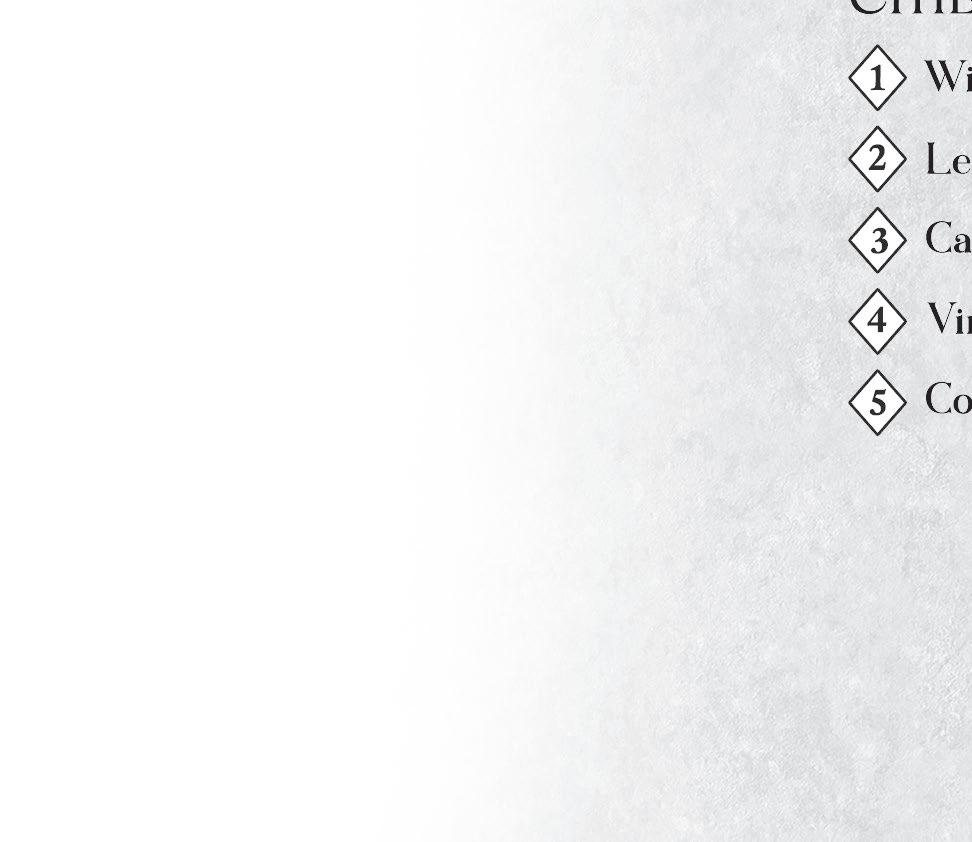
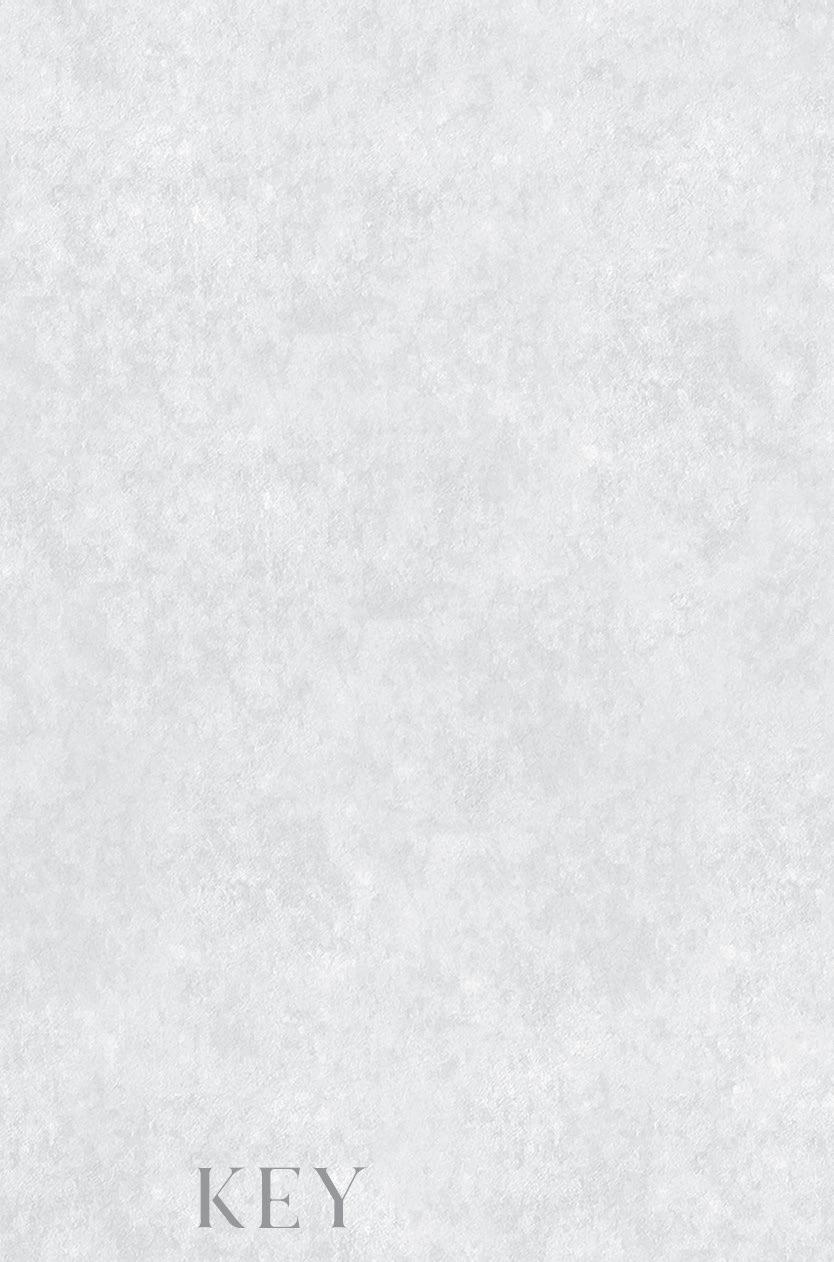
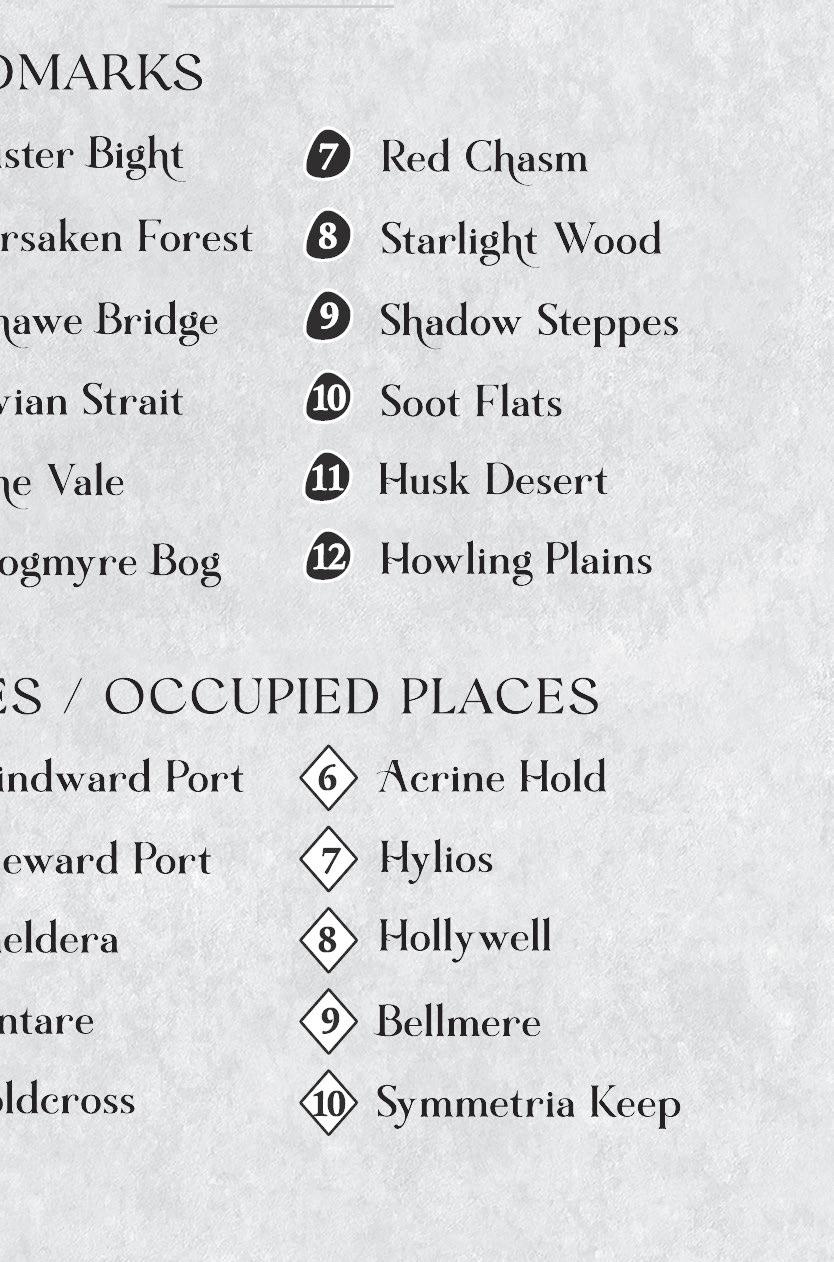

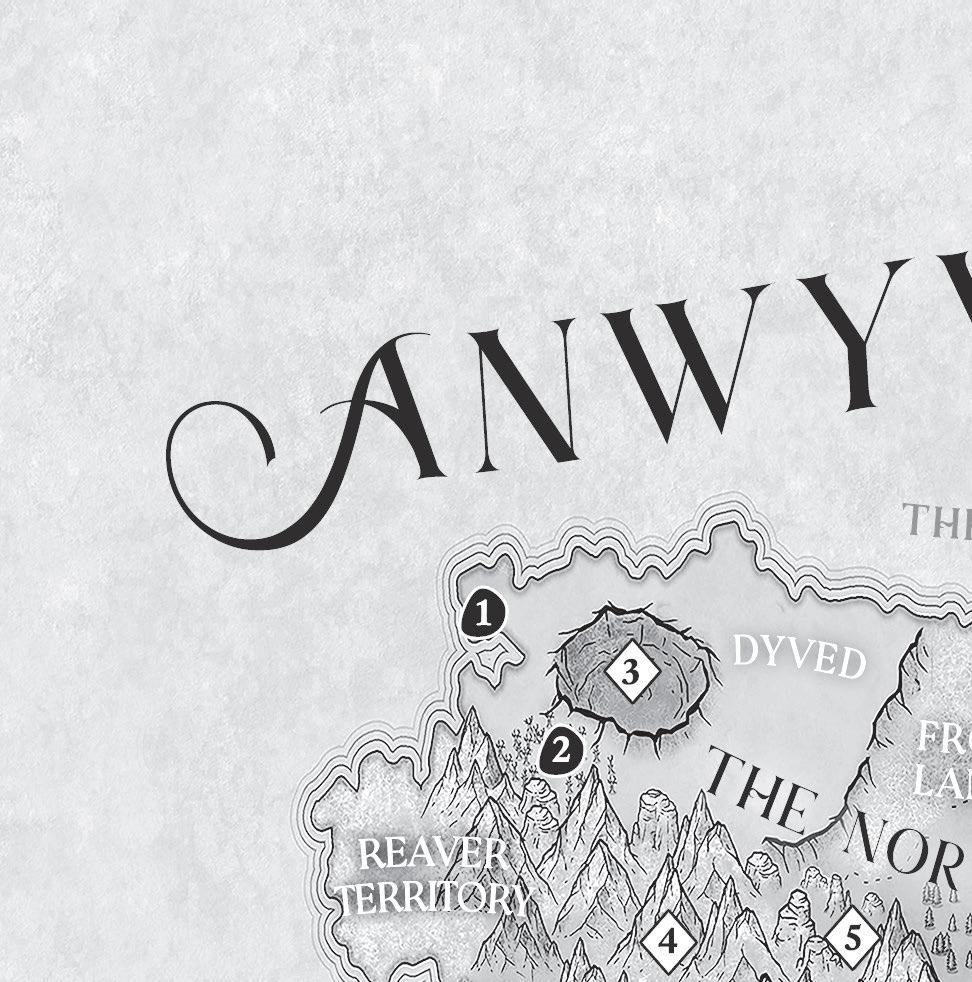
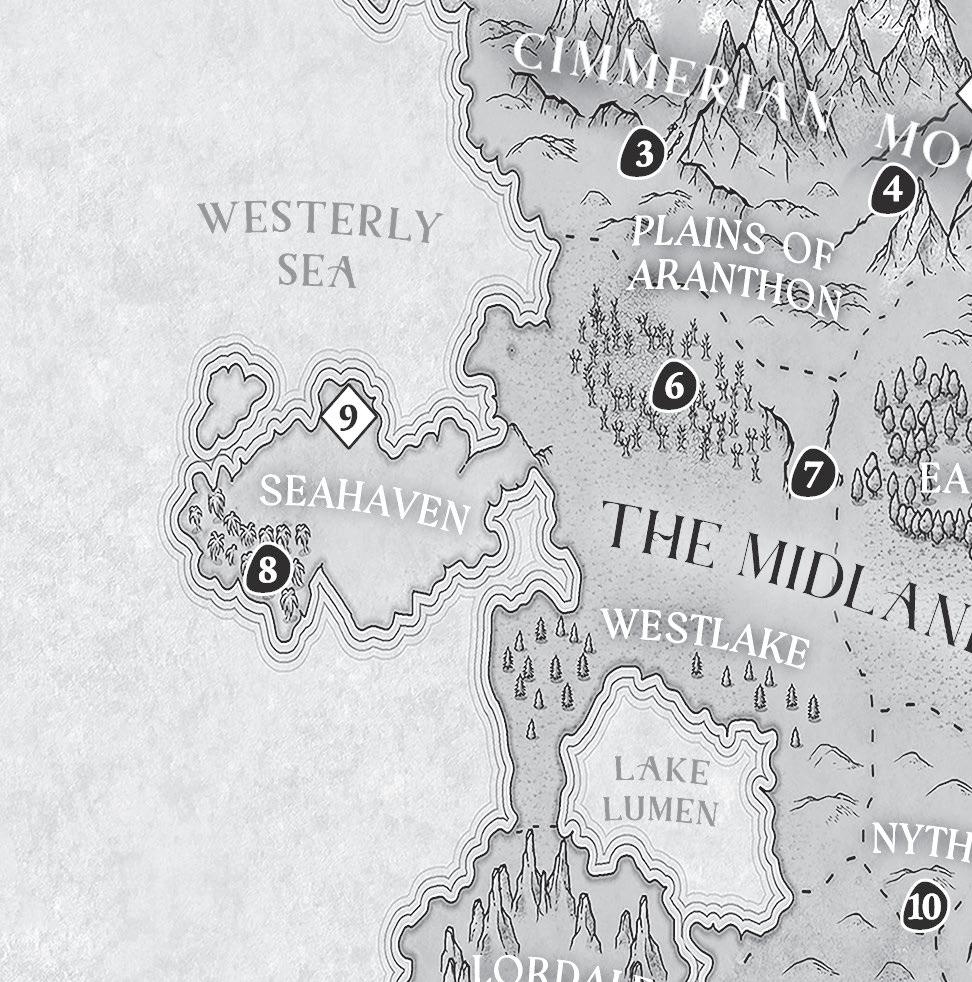
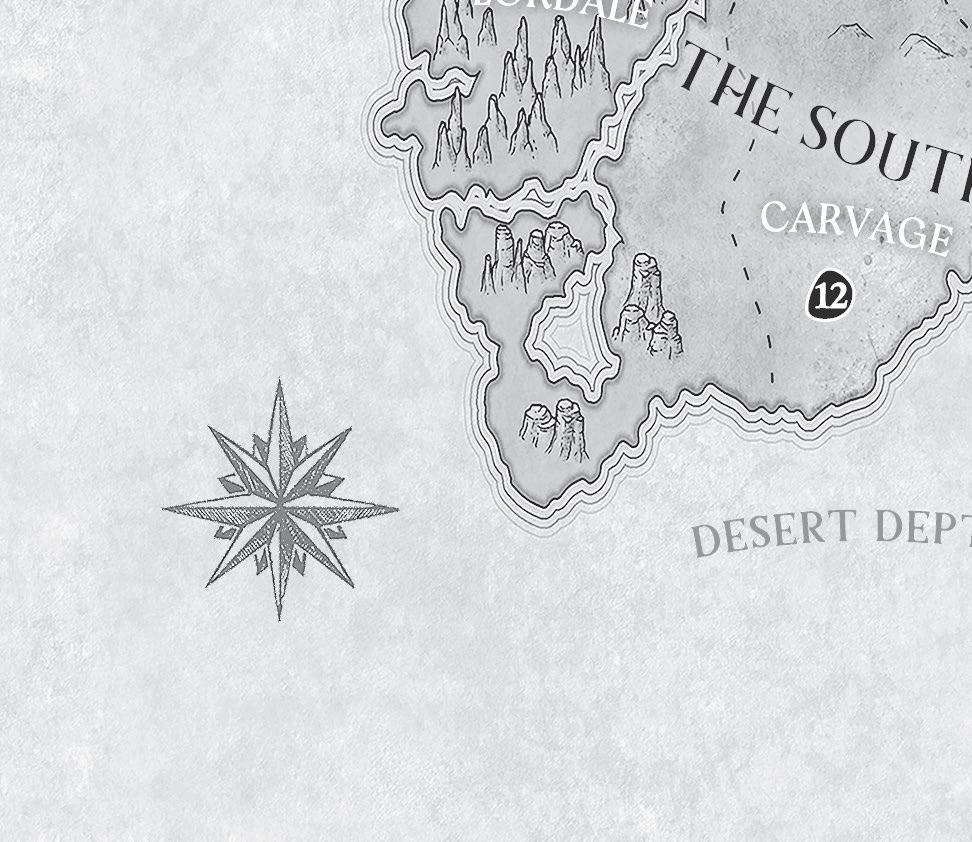
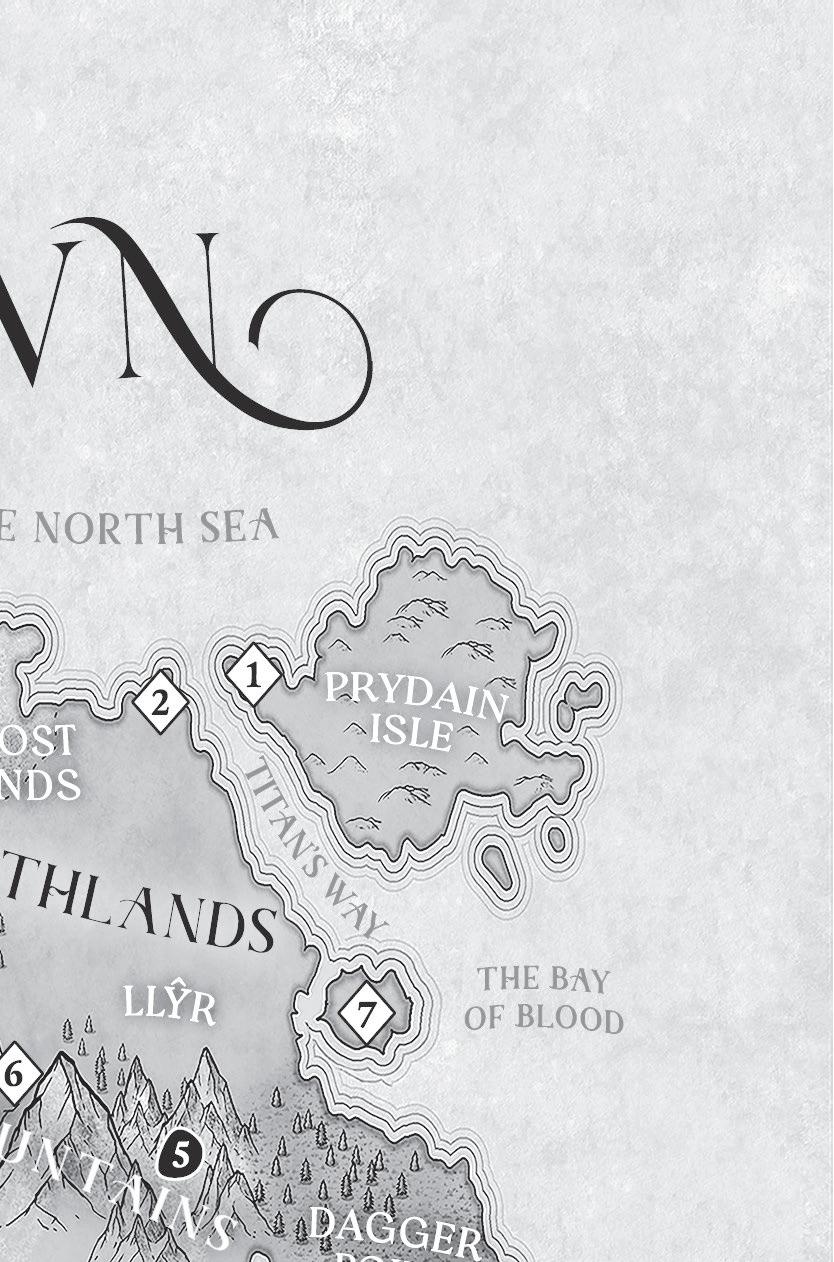
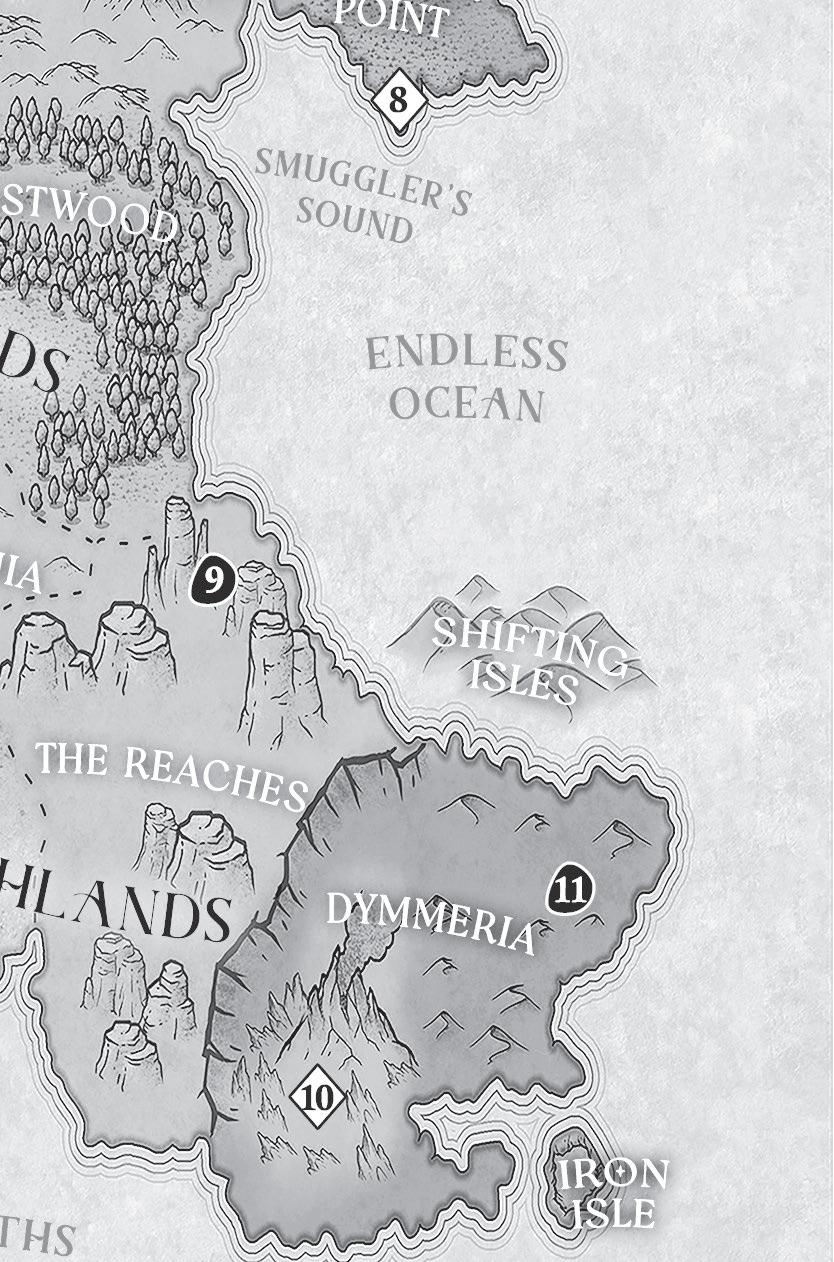
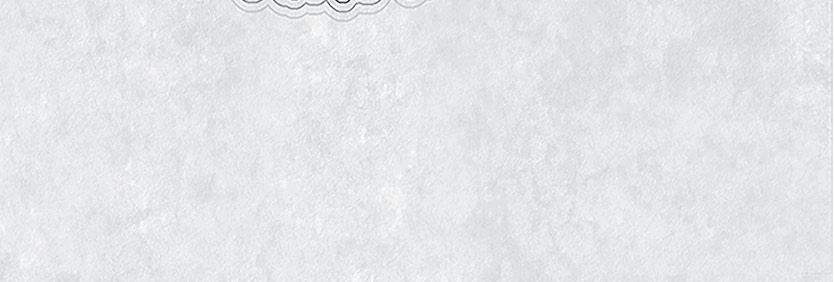
ANWYVNIAN
The age of mortal men began
When iron armies
March’d north
A reign of faery turned to ash
With maegic blood
Spill’d forth
Hark!
An end to wicked trickery
Corroding the land
Of kings
A farewell to the evil wind
Whispering through
The trees
Hark!
The rule of sword and st
Man’s power
Undisputed
The hunt for hal ings now begins
Foul bloodlines
Executed
The noose chafes, a necklace of death.
I feel my pulse—steady, staccato—thudding away beneath the fragile skin at my throat. There’s no fear. Not anymore. That came earlier, with the bruising hands and snarling hounds that tracked me through the wild marshland. And it fled with the sun, slipping over the horizon into crushing darkness.
What is it Eli always said?
Fear only means you have something left to lose.
I have nothing left now. Nothing but my life, and that isn’t worth much of anything to anyone.
Certainly not to my captors.
“Wily little bitch, isn’t she?” A gruff voice barks out a laugh somewhere to my left. “Took half our unit to track her down. A dozen men. Three days we spent in that damned bog with wasps and snakes and spiders. Knee- deep in mud and moss and all manner of shit. She nearly slipped our net when we lost the light yesterday.” A gob of spit lands on my cheek. “Faery scum.”
Another voice answers—this one younger, and slightly wavering. A new recruit, perhaps, not yet worn-out by this endless, bloody game of war the mortal men seem intent on playing. “She’s just—she’s so young.”
“Don’t let your eyes fool you, boy. Faery trickery, that is. They mask their true nature with pretty faces and sweet smiles, same as a poisonous flower. In the olden days, they say some of them cast such a glamour, could make you see anything they wanted. March you straight off a cliff, thinking you were skipping through a field of daisies.”
The younger soldier sucks in an audible breath. His terror is palpable even through my blindfold.
“Don’t worry, son. Maegic like that hasn’t been seen in these parts in nigh on two centuries.” The gruff voice chuckles. “The ones we hunt down, like this runt here, are halfl ings mostly. Leftovers from before the Cull, back when bloodline mixing wasn’t outlawed. They’re no more enchanted than you or me.”
There’s a marked pause. A cave of silence yawning wide between the two men.
“’Course, that don’t make ’em helpless,” the older soldier tacks on, almost defensively. “She’d gut us in our sleep given half the chance. Never doubt that.”
“How did you fi nally catch her?”
“Ran her to ground by the Red Chasm. The ore in those rocks is enough to confuse ’em. Clouds their sense of direction, muddies their minds.” He exhales a sharp breath. “No foe is invincible—not even a damned point.”
I tense at the slur, binds going tight across my chest despite my attempts to keep still. Point. The soldiers who’ve taken me prisoner use the insult often, hissing it at me under their breath when they change watches, tossing it around in casual campfi re conversation. As if reducing an entire race to our most notable physical trait—the pointed tip of an ear—somehow makes their barbarity easier to stomach. Every time I hear it, something within me snarls in silent rage. A broken beast, itching for retribution that will never be mine.
Gods above, grant me vengeance in my next life.
“Ain’t so hard to kill ’em, actually. Just a matter of fi nding the right weapon,” the older soldier boasts, brimming with sage wisdom. “Iron’s best, of course. But, gods’ truth, stick ’em with anything sharp and the job’s done. Points bleed, same as any other beast in the forest. Didn’t your pa take you hunting, son? Haven’t you ever gutted a doe?”
“No . . . I . . . We . . .” The young soldier shifts from foot to foot, boots crunching dead leaves. “We’re crofters, sir.”
“Crofters?”
“Yes, sir. We tithe a tract by the coast. Iceberries, mostly.”
The older soldier scoff s. “Well, you’ll need ice in your berries for this deployment, I’ll tell you that. Cold as all fuck, this close to the Cimmerians.”
Behind my blindfold, I imagine the scene. An encampment of soldiers, weather beaten from weeks on the road. A crackling fi re to ward off the chill—and the wolves. A simple dinner cooking over the coals.
The smell of meat carries to me on the wind, and my stomach rumbles a contemptuous response. Hare, most likely, or a steer. Maybe a wild boar, if one of them is skilled enough with a bow. For surely there are hunters among their number. Men capable of tracking down some prey besides me and my kind. Though if we were edible, they might eat us, too.
It’s been an unforgiving winter.
I wonder to which kingdom they belong, to which of the warring kings they’ve pledged their fealty. Perhaps the very one who sent his armies into Seahaven and set the Starlight Wood afl ame—and the only home I’ve ever known along with it.
A hand tugs at the shackles around my raw wrists. I hear the hiss an instant before the pain bolts through me. The smell of charred skin hits my nostrils.
My own flesh, burning.
It takes all my self-possession not to cry out—but I will not give these soldiers the satisfaction. Breathing deeply, I press my spine harder against the bark of the tree to which I’m lashed, trying not to lose consciousness.
Gods above, it hurts.
“See how she blisters?” the older soldier asks. “You’d think I’d taken a blazing log to her!”
“Y-yes,” the youth stammers. “I see.”
The irons stir a ceaseless tide of agony that never recedes— even now, after my wrists are scorched nearly to bone and sinew. Each shift of my chains sets off a fresh flow of anguish.
“When . . .” The young recruit clears his throat. “When will they . . .”
“String her up? Won’t be long now. Commander Scythe will be here by midnight. Captain says we can’t touch her till he signs off.”
“Why?”
“Likes to be sure they’re really dead, I suppose. Kick around the ashes a bit, make certain nothing stirs. Seems overboard to me, but it’s on order of King Eld, so I do as I’m told. Hang ’em up, burn ’em down.” There’s the sound of a cork being unstoppered. A throat working to swallow the contents of a fl ask. A steadying breath. “Folks tend to get a touch superstitious when it comes to faery executions. You’ll see, lad.”
“Right . . .” The young man sounds unconvinced. “When I enlisted, I didn’t think we’d be hunting halfl ings. I didn’t know there were any left.”
“Not many, these days. ’Specially this far up in the Midlands. The Southlanders have some . . . different practices. You should thank the skies you aren’t stationed at the border to the
Reaches. Hard to stomach, from what I’ve heard. And I ain’t heard much.”
My heart lurches. I’ve not been spared the rumors of what happens to halfl ings in the Southlands. Not in full. Eli gave me the briefest of glimpses at that darkness one night over a stiff dram of whiskey.
They might not kill you right away, Rhya, but the things they’ll do to you will make you wish they had . . .
I force my thoughts from that dark path. It leads nowhere good.
“Son, just keep your head down, your hands steady, and your questions to yourself. You’ll be fi ne. It’s a job like any other—no matter what the rabble around here tells you.” The older man’s voice drops lower. “Swear, some men’s breeches get stiff watching faeries squirm on the end of a rope. Different sort of bloodlust, you understand?”
“That’s foul!”
“Aye. Don’t make it any less true.” He takes another deep pull from his fl ask. “Long while back, when I was no more than a young buck like you, points were a bit more common in these parts. My unit stumbled across a whole family one day, hidden away in the caves beneath a waterfall. Greenish skin and hair like river grass . . .”
Greenish skin?
Hair like river grass?
Wherever do they think up these ridiculous stories? From children’s bedtime tales? Besides our ears, halfl ings are nearly indistinguishable from humankind. But then . . . I suppose it’s easier to justify killing a mythological monster than a living being. Something, not someone.
The soldier’s voice drops almost to a whisper. “We’d lost so many in the Avian Strait. Bloodiest battle in a hundred years.
And Soren’s men just kept coming. Driving us back, over and over and over. Morale was low. Our army—we needed a win. So when those faeries fell into our path . . .”
A chill of foreboding sweeps through me despite the burning agony at my wrists. I close my eyes behind the blindfold, wishing I could shut my ears as easily. I don’t want to hear about the slaughter of an innocent family. I can’t bear the details of a mother, a father, and their children torn apart by battle-addled soldiers. Not with my own imminent death pressing so hard against my windpipe.
A boot scuff s against the earth, and the man coughs. “Safe to say, the things I saw that day . . . well, it’s the kind of scene you don’t forget. Even after ten years.”
There’s another beat of quiet. The younger man says nothing, perhaps shocked silent by the gruesome picture his companion has painted. I’m not foolish enough to think his reticence is born of sympathy for me. More likely, he’s merely doing as he’s been tasked—keeping his opinions to himself.
He’ll make a good soldier.
The quiet is broken by the thud of a hand slapping against a shoulder. “You’re pale as a ghost, son. Go get yourself a bit of venison before it’s all gone. And bring me back some, will you? I’ll keep watch over the prisoner.”
There’s the sound of retreating footsteps, then the sigh of a body settling against a tree. In the distance, the murmur of conversation—other soldiers, wolfi ng down their dinner around the fi re. After a moment, I pick out the faint fl ick of a knife against a block of wood. I allow myself to wonder what my remaining guard is carving.
A sigil for whichever god he worships? A token for the wife left behind in the land he calls home? A toy for his small daughter to play with when he fi nally returns from conquest?
Ten years, he said. Ten years of battles. Ten years of soldiering. Ten years of bleeding and fighting and killing.
Surely there is a life outside all this. Surely this man has a family waiting for him somewhere. Will he tell them of the faery girl he slaughtered to keep them safe? Regale them with details of the monster’s mottled face and sagging tongue as she swung from the bough, a grotesque mask illuminated by torchlight?
The gallant hero who slew the beast.
Huzzah!
After the way he spoke to his young companion, I think not. He’ll take no joy in his task—but he will complete it all the same, carrying out his captain’s orders without question.
The branches creak overhead, a death knell.
I’m glad they plan to kill me at night, under the stars. It would somehow be worse to die with the sun shining down and a light breeze stirring the grass at my feet. Shadows paint a more fitting fi nal scene for the snapping of my neck.
The last breath of Rhya Fleetwood.
Ward of the renowned Eli Fleetwood.
Orphan.
Faery.
Hal ing.
Fugitive.
Point.
In some ways, it will be a relief. To fi nally rest after all these months on the run. Since they executed Eli, since they burned the Starlight Wood to ash along with our cottage, there is no refuge left for me on this earth. No strong, protective arms to rush toward when my hair snags on the brambles or my ankle twists on a rock in the riverbed. No warm bed to crawl into at the end of a crisp autumn day.
I have no idea where I am. Before they hunted me down, I’d
been lost for weeks, wandering in search of solace that no longer exists, surviving on rubbery mushrooms dug from the packed earth and cold trout fi shed from icy streams. When I came across a village five days ago, the smell of fresh bread sitting on a stone windowsill proved too tempting to ignore.
I could curse my own stupidity. I know what Eli would say if he were here. The heart makes you soft. The stomach makes you weak. Ignore their eeting impulses. It is your mind you must mind.
But in a moment of weakness, I abandoned his teachings. Gnawing hunger made me careless, dulled the sharpness of my senses beyond reason. I’m quick by nature, but that day I was not quick enough. As I darted from the tree line to the dilapidated house at the edge of the wood, I did not hear the click of a bootheel on the stone floor inside, nor the nocking of an arrow in the bow, until it whizzed a whisper above my head. And by then, it was too late.
Far too late.
From that moment on, life was headlong fl ight. Running until the breath was gone from my lungs, until the strength was stripped from my bones, until my bare feet left a trail of bloody footprints on rocks and riverbanks alike. They tracked me—fi rst the villagers themselves, later the soldiers they had summoned. Through a forest, across a field, and fi nally into a boggy marshland. I nearly lost them there in that hissing, burping mire, where the air was thick as syrup and swarms of insects blacked out the midday sun. Nearly.
I had no way of knowing I was being herded toward a deep ravine. The Red Chasm, the soldiers call it, so named for the rusty color of its plunging depths. For there, the stone runs thick with iron deposits. Thick enough to drain me on a good day— and a good day this was not.
I felt the ore sapping my strength with each step as the men
closed in. My legs buckled, threatening to give out beneath me. Even if they hadn’t, there was nowhere left to run once I reached the cliff side. Not unless I fancied hurling myself over the edge, plummeting to my death in the void.
In hindsight, tied to a tree with the fiery grip of iron shackling my wrists, a thick noose looped around my neck, and a pyre in my immediate future . . . I might prefer that sharp fall. At least then, my death would be at my own hands. My own choice.
My last choice.
Gods, I’m tired. The noose is so heavy I can no longer hold my head upright. I sag limply against my bindings, glad Eli is not here to see me. He raised me to fight. To be fierce. Steady of will, strong of mind, sound of heart.
I’ve failed him.
I’ve failed myself.
The thought makes me want to cry, but I have no strength left for tears. I can’t recall the last time I had a bite of food, a sip of water. My tongue is dry as sand, the memory of a warm meal as foreign to me as the land in which I’ve been captured.
I try to focus through the pain and exhaustion crippling my body.
What did the soldier say?
King Eld.
The Avian Strait.
Bloodiest battle in a hundred years.
In my pain-hazed mind, there is a map, full of many kingdoms. Ever-shifting feudal lands with ever-changing paper kings. Paper kings. That’s what Eli always calls them—called them. Their dominion not a divine right, but self-appointed by ink and quill; their hold on their titles as thin as the parchment upon which they are scrawled, one sovereign easily scratched out and exchanged for another.
Hardly worth memorizing, Eli grumbled once, his wizened hands splayed on his vast collection of unfurled charts. The bloody boundaries shift with every major battle . . .
I must’ve studied those maps a hundred times, but in this moment my memories feel gossamer thin, impossible to bring into focus. Kingdoms, fractured like pieces from a shattered shield, fall away before I can cobble them properly back together. Carvage. Eastwood. Lordale. Nythia. Dymmeria.
The Reaches.
The names blur, the inky letters smearing. Indecipherable. Ultimately meaningless. My spirit will return to the skies regardless of where my body burns. It’s not much consolation, but I cling to it anyway.
I’m far from home, I know that much. Wherever they’ve brought me is a barren land. Not just cold—devoid of life. I can feel no pulse of power from the ground beneath my feet, hear no ancient whispers among this grove of half-dead trees. And even if I could . . . I’m so weak after days of frantic fl ight—hounds nipping at my heels, arrows whizzing past my head, torches cornering me like a wild thing—I’m not certain it would do me any good.
Sunlight cannot fi x a flower on the cusp of death. It doesn’t matter anyway, I tell myself, leaning harder against my hanging tree. The nick of the guard’s blade against his wood block is a steady metronome, ticking down the seconds until my execution. Nothing matters anymore, Rhya. By morning, you’ll be a pile of ash.
Imust nod off at some point, because I wake with a start to the rumble of hooves. A lone rider, moving through the trees with speed.
The commander has fi nally arrived.
The ground beneath my bare feet shakes as the newcomer thunders into the encampment. Chain mail clanks, boots thud as he dismounts. I can see nothing with the damned blindfold over my eyes, darkening an already black night to pure pitch. Straining my ears, I struggle to pick up snippets of conversation.
“Commander Scythe. It’s an honor to have you here, sir. An honor.”
“Burrows.” The response is curt.
“Sir, if I may say, your tactics at the Battle of Ygri last spring were simply inspired. Those Nythian scum fell like stalks of corn at harvest! I’ve never seen anything like it in all my years as—”
“Captain, if I wanted my ass kissed I’d be in a brothel. Take me to the prisoner. Now.”
“Y-yes, sir,” Burrows stammers. “Right away.”
The footsteps grow louder as they approach. I take a deep
breath, bracing myself. Still, my heart gives a great lurch when a hand snakes out and rips the covering from my face.
Torchlight fl ares, searing after so many hours spent in darkness. I blink to clear the bright spots, but it does little good. Stars are bursting inside my eyes. Strong fi ngers fi st in my dirty hair, dragging my lolling head upright with one rough jerk. His other hand curls around the noose and pulls tight, compressing my windpipe. Breath becomes an impossibility.
I thought I was past this—past the fear.
I was wrong.
The face that slowly swims into view makes my heart fail. What I can see of it, anyway, under the heavy black helmet. A metal nose bridge bisects his features into two unforgiving halves. On either side, the thick slashes of his brows are furrowed inward and, just beneath them, a set of eyes so dark, they seem two bottomless pits glaring out at me. In the fl ickering torchlight, he appears more daemon than man.
“Where did you fi nd this one, a graveyard?” His grip tightens in my hair until my scalp burns. “She reeks like a week-old carcass.”
“Frogmyre Bog,” the heavily bearded man standing to the commander’s left off ers. Captain Burrows. I recognize him instantly—he’s the one who put the rope around my neck when they caught me on the cliff side. He tied the other end to his saddle as they led me back to their camp, forcing me to run behind him or else be dragged. When, after almost an hour, my bleeding feet fi nally failed and I collapsed into the dirt, he’d rubbed my face in his horse’s shit, laughing with unbridled glee.
My hair is still clumped with it, the pale strands stained the dull brown shade of dry manure. The odor is enough to make a steel- clad stomach curdle. Beneath his nose guard, the commander’s nostrils fl are. Lips pressed into a stern line, his dark
gaze sweeps from my face to my feet, seeming to commit every detail to memory—skin caked in bog, skirts stiff with fi lth, eyes wide with terror.
“In rather rough shape, isn’t she?”
“Point bitch kept us in pursuit for three days,” Burrows hisses, glaring at me with unleashed disdain. “She’s lucky we didn’t do worse.”
Several of the gathered soldiers make sounds of agreement. Their resentment is tangible—as is their impatience. They’re eager to see me swing.
Scythe does not comment. Nor does his attention shift to his subordinates. Instead, it seems fi xed on my wrists, where the irons have reduced my skin to a raw, unrecognizable mess of charred flesh. The agony of it is making me lightheaded. Or perhaps it’s the lack of air; his hold on the noose does not relent for even an instant.
Burrows grins, a fl ash of stubby teeth stained brown from chewing tybeae leaf. “Iron is a beautiful thing, isn’t it?”
“In the future, keep in mind, Burrows . . . executions are my jurisdiction, not yours. You bring me a halfl ing in this condition again, I’ll make certain you can’t sit properly in your saddle for a fortnight.”
A hush falls over the men. It is no idle threat, made all the more menacing by the tone in which it’s delivered: so carefully bland, he might be discussing seasonal weather patterns. His expression—what little I can see of it beneath the helm—is as empty as his tone and equally chilling.
The soldiers are scarcely able to look in the commander’s direction without cowering. Only my binds keep me from doing likewise. With the rope held so tight around my neck, I can’t move—not even when he brings his face a hairsbreadth from mine, regarding me as a wolf would its supper.
If I had the strength, I might head-butt him. Spit at him. Even summon a glare. As it is, just remaining conscious is becoming difficult. My lungs scream for breath. The starbursts have returned to my eyes, fragmenting the world around me into airstarved delirium.
If Scythe notices my discomfort, he doesn’t much care. “You said there was something . . .” he murmurs, “odd . . . about this one.”
“Yes, sir.” Burrows swallows nervously, sidling closer. “There’s some unnatural symbol inked into her skin. A mark of evil, you ask me. Never seen anything like it in all my time hunting points.”
At this, Scythe, already immobile, seems to still down to his soul. “What mark?”
“We thought it was a slave brand at fi rst. It’s raised like scar tissue, but blacker than the devil’s cock.” Some of the men chuckle, but there’s a nervous edge to their amusement. “Could be a tattoo, I suppose,” Burrows continues. “But even the best ink-mavens in Carvage don’t have that sort of skill. See for yourself. There, beneath her dress, right between her—” Burrows chokes into silence when the commander’s head swivels in his direction.
“Beneath her dress?” He pauses and the very air holds its breath, as in the moment before a guillotine blade plummets. “I had no idea your prisoner inspection process was so thorough, Captain.”
“It wasn’t— We weren’t—” Burrows’s shoulders stiffen at the implication. He’s gone pale under the force of Scythe’s stare. “Saw it while we were putting the noose around her neck, that’s all. But when one of my men made the mistake of touching it . . .” Burrows shakes his head, as if he still cannot quite fathom what happened when his second-in-command ripped open the
front of my dress at the edge of that cliff and shoved down the thin shift beneath it, leaving me perilously exposed for the viewing pleasure of an entire company of soldiers.
Whatever that man intended to do to me—and I could plainly guess, from the leering gleam in his eyes—was rendered impossible as soon as his fi ngers grazed my strange birthmark.
“What’s this?” he muttered, his foul breath fanning over my face as he leaned in and ran two fi ngertips down my breastbone, which rose and fell rapidly beneath gulps of panicked breath. Before I could so much as fl inch away, something within me—I don’t know what , only that it is there, and has been there for a very long time, waiting like a snake poised to strike for just such an opportunity—uncoiled itself from the center of my chest and lashed outward. The soldier reeled back as if scalded, clutching his hand with a moan that echoed through the Red Chasm, rebounding back in a sickening chorus of agony.
I was so stunned, watching him writhe in the dirt before me, it took a moment to tug my shift back into place, covering the whorled design once more. I touched it gingerly as I refastened the front laces of my dress with shaking fi ngers, half-afraid I’d fi nd it white-hot. And yet, it was cool as ever to the touch—a shade colder than the rest of my flesh, just like always, no matter how feverish I become or how I exert myself.
The party of soldiers had stared from me to their injured comrade and back again, their eyes brimming with apprehension. As though I’d attacked the man on purpose. As if I might turn on them next.
If only.
Such power would come in especially handy at a time like the present. Yet, in truth, I’d done nothing to sear the skin from the man’s fi ngertips. Not intentionally, anyway. Nor could I seem to
replicate such an effect after his comrades clapped me in irons— albeit with considerably more wariness about their hand placement— and led me back to this camp.
“Here,” Burrows says abruptly, reaching a hand toward my bodice. “I’ll show you.”
Scythe’s formidable frame shifts directly into the captain’s path, blocking him before so much as a fi nger grazes me. “You will not touch her.”
“I’m just trying to help! If you’d seen what it did to my second-in-command—”
“You will not touch her.”
Surprise blooms on Burrows’s face, then quickly sours into seething resentment. He does not enjoy being scolded. He even less enjoys being outranked in his own camp. But he’d be a fool to question Scythe’s authority. Clenching his stubby teeth, he swallows his objections and steps back a pace.
Still held painfully tight by my bindings, I cannot shy away as Scythe tugs one-handed at the neckline of my dress, undoing the laces with methodical movements. The weight of many eyes from the gathered crowd presses in, though his mammoth form shields me mostly from view. My heart hammers so loud against my rib cage, he must be able to hear it.
Cold air brushes the top swell of my breasts as the commander pulls my shift down—no more than strictly necessary, merely an inch or so—to expose the top half of the triangular birthmark. Mortification and terror mingle within me. I’d gasp if I were able to summon enough breath, but the noose is still held tight by the hand that remains above my head, preventing all but the most narrow slivers of air from entering my lungs.
I watch his face as he examines the strange design, trying to read his expression. There is no expression to read. He is blank,
his intentions as inscrutable as the interlocking whorls and spirals he stares at with such intent focus.
I will the mark to strike out at him, as it did the man on the cliff side; wish for that snake of unpredictable power to come uncoiled once more and maim this new enemy standing before me. It does not comply. It sits cold and still within my breast, its fangs sheathed and silent, its existence as much a mystery as its origin.
According to Eli, I’ve had it since the day he fi rst found me— a newborn babe with a crop of white hair, strange eyes, and a mysterious brand on her breast of such dark tint, it seemed infused with night itself.
Best keep it covered, Rhya, he told me again and again, so many times I grew weary of hearing it before my fi fth naming day. There are those who might think it a cursed mark, child.
After the events on the cliff side, I fear they may be right.
Scythe doesn’t touch me, wise enough to heed Burrows’s warnings. But his gaze is so heavy, I can almost feel it scoring into my flesh as he slowly sets my dress to rights, his dexterous fi ngers making easy work of the ties. I’m not certain why he bothers—in a few moments, I’ll be a pile of embers—but I’m oddly relieved I’ll not spend my last moments on this earth with my body exposed for the amusement of strangers.
“The torch,” Scythe barks suddenly, his free hand extended blindly to his left. “Bring it here. I need the light.”
A young recruit steps forward, arm shaking as he extends the torch. I try to struggle as Scythe brings it close to my face, but my bindings hold fast. The fl ame is unbearably bright and scorching hot. My skin prickles with the promise of pain and, for a moment, my mind blanks with panic.
He’s going to set me a ame, right here, right now.
My eyes close involuntarily, shutting out my enemy’s face, my
inescapable fate. Yet the torch never moves closer. Instead, there is a low growl of exasperation as Scythe fi nally releases the noose at my neck. Air floods down my throat, bursting into my screaming lungs. My ragged gasps are met with chuckles from the watching soldiers.
“Hardly worth hanging her,” Burrows remarks. “She’s halfdead already. Waste of perfectly good rope, in my opinion.” A gob of spit shoots in my direction. I do not bother to look and see where it lands. I’m too busy trying to catch my breath.
I’ve barely had time to pull in a full gulp of air before a large hand clamps down on my left shoulder and shakes. Scythe’s impatience is evident in every snap of his wrist. My bones rattle with the force of it.
“Your eyes. Open them.”
His command hardly registers over the roar of my pulse between my ears. The grip on my shoulder tightens to the point of pain. I’ll have more bruises by dawn—if I am still alive at dawn.
“Open them.”
I do as I’m told, peering at him through narrow slits. Torch held aloft, the commander glares down at me, frightening in his intensity. He’s massive—barrel-chested and so tall, he blocks my view of the rest of the world. A nightmarish figure. It takes every bit of my faltering courage to hold his gaze as it burns into mine. Does he want to look me in the eyes as he strikes me down? Watch the light leave them as his blade slides between my ribs?
I refuse to blink. If this is my last moment, I should live it eyes wide open. I brace for the pain, but then—
Scythe’s stern-pressed mouth goes slack, just for a moment, a slip he covers so fast, I wouldn’t have seen it at all if he weren’t standing so near. However fleeting, I see . . . something that looks almost like shock.
Can it be shock?
“Impossible,” he whispers with a bleakness that sends a chill skittering down my spine.
“What was that, sir?” Burrows asks from a few paces back. “Couldn’t quite hear you.”
“Nothing.” Scythe’s voice is back to its normal brusqueness, but he does not turn to face the captain. He’s still looking into my eyes, searching for some hidden revelations encoded in their depths. His own eyes are unreadable. Two dark pools, reflecting nothing but fl ickers from the fl aming torch in his hand. It would be easier to guess the thoughts of a statue.
Our gazes hold for a prolonged beat. His fi ngers, still gripping the torch, tighten infi nitesimally. In the stillness, I feel rather than see him take a bracing breath.
“Shall we string her up, then?” Burrows asks tiredly. “It’s nearly midnight and we’re off to the southern front at fi rst light. King Eld has called for reinforcements. Seems some Nythian rabble at the borderlands are making troub—”
The captain never fi nishes his sentence. The word trouble is halfway out his throat when the commander’s sword enters it, severing his windpipe in one clean stroke. I had not even seen Scythe reach for the weapon sheathed across his back. Nor, it seemed, had any of his comrades. The sheep are wholly unprepared for the wolf unleashed in their midst.
Burrows’s head has not yet hit the ground when Scythe whirls around—torch in one hand, sword in the other—and drives his blade through the two nearest soldiers with no more effort than a pair of shears snipping flower stalks in a garden. Another spin and two more men hit the dirt, their limbs crumpled petals.
Five dead in a single heartbeat.
By the time the remaining soldiers realize what is happening
and begin to scramble for their own weaponry, it’s too late. Scythe is a blur, moving so fast it’s hard to track his movements, let alone block them.
One soldier takes the blazing torch to the face, his harrowing screams keening into the night. Six more take small, precisely thrown daggers to the neck, dropping like stones as their lifeblood pours into the earth. The others, who turn and flee into the cover of the dark wood as fast as their legs can carry them, he hunts down and eliminates with the practiced ease of a natural killer.
As Scythe stalks his doomed prey, for the fi rst time since my capture, I fi nd myself alone. Still lashed to the tree, the ground around me littered with the bodies of the men who made me their prisoner, I’m too terrified to be relieved. In the sudden quiet, I think my heart will beat right out of my chest, cracking through my ribs and falling to my feet.
My gaze sweeps the shadowy encampment, wide with horror. The corpse closest to me is barely more than a boy. His eyes are open, fi xed sightlessly at a night sky he can no longer see. Was he the young recruit I overheard asking for advice, mere hours ago?
I suppose it doesn’t matter, though I can’t help the pang of unwarranted sympathy that squeezes my heart.
He would’ve happily watched you hang, Rhya, I scold myself harshly. When did you become so weak?
I do not have time for foolish sympathies—even for the collateral damage of an innocent. Bigger problems are looming. For though Scythe has killed my captors, he is no savior. Of that, I’m certain.
I count less than five minutes before he stalks back into the clearing, his cloak billowing behind him like a reaper from the old tales, helmet gleaming dark silver in the midnight moon. With grim efficiency, he retrieves his daggers from the jugulars of
the fallen soldiers, returning them one by one to their slots in the bandolier strapped across his chest.
He isn’t even winded.
The broadsword in his hand is stained black with blood. In the dim light of the dying fi re, I watch him wipe it clean on Burrows’s decapitated body. When it once again shines, he rises to full height and takes a deep breath that broadens his whole frame.
Slowly, his head swings in my direction. The breath snags in my throat as his eyes lock on mine, pinning me in place more effectively than the binds around my waist. In two strides, he’s standing before me. I try not to scream as he raises his sword, but I cannot contain the faint bleat of terror that escapes my lips.
At the sound, he goes still. One eyebrow arches upward, as if in surprise, though his mouth remains a severe line. We regard each other for a moment, neither seeming to breathe in the quiet of the night.
Do it. I glare at him with what fl imsy courage I can muster. Get it over with already.
As if hearing my challenge, his sword hand jerks and in one smooth stroke his blade makes its cut. Not across my neck, but through the noose that binds it. The rope falls to the ground as his sword fl icks again, this time ridding me of the binds around my torso.
Free at last, I topple forward into the dirt. My deadened legs are incapable of supporting my weight, and my wrists, still clapped in irons, can do precious little to shield my fall. Pain explodes in my temple as my head cracks against the hard earth. The wind evacuates my lungs in a great whoosh, leaving me gasping in a heap.
When I manage to peel my eyes open, I fi nd myself face-toface with a familiar bushy beard and two pockmarked cheeks.
Burrows’s severed head is close enough to kiss. I shriek and roll over, pushing up on my chained hands, my motions clumsy in my desperation. The earth beneath me is saturated with soldiers’ blood. I try not to notice as I drag myself along in jerky spurts, fi ngers clumping in dirt and fallen leaves, passing body parts and tree roots as I go. Each inch of progress is agony on my damaged wrists.
“Get up.”
The voice from above is cold. I decide to ignore it.
I think I hear a sigh, but I can’t be certain. I’m too focused on my rather pathetic escape attempt. I make it approximately two more handspans before Scythe reaches down, grabs me by the hair, and yanks me forcibly to my feet. I cry out in pain, but he does not yield—merely tows me along like a disobedient hound.
We cross the clearing in seconds, leaving behind the massacred men and their orderly camp. The fi re has nearly gone out; there is no one left alive to tend it. At the edge of the clearing, a pack of horses graze beneath a tree. Amid the sea of dappled gray coats and soft white muzzles, one steed stands apart—a glossy black stallion, his color perfect camoufl age for riding through the night without detection. He’s several hands taller than the others and wears an armored saddle fit for battlefields. A plate of chain mail covers his broad nose.
There is little doubt as to which rider he belongs.
Scythe releases my hair, but only so he can toss me roughly across the rump of the great horse—face down, my legs dangling over one side, my manacled hands on the other. Seconds later, a leather saddlebag strap cinches efficiently across my middle, holding me in place.
I’m too worn-out to protest the indignity of my position.
The commander’s menacing presence recedes momentarily as he sets loose the tethered horses. I hear the low cluck of his
tongue, the fi rm slap of his palm against a series of rumps. Eager hoofbeats fade into the night as the cavalry leaves the camp—and their dead masters—behind. I hope they fi nd peace in their early retirement, somewhere in the wild. No longer forced to ferry anyone into battle, no longer beholden to the whims of bloodthirsty kings. Just days full of sun and wind and endless grassy fields for grazing.
I fear my own fate will not be half so tranquil. With a low grunt, the commander swings up into the saddle and, clicking his bootheels against his horse’s sides, spurs us off, into the dark.
It’s nearly impossible to fall asleep slung across the stallion’s back, each pound of his hooves against the earth jolting through my bones like a blacksmith’s hammer on an anvil. And yet, my exhaustion must exceed my discomfort, for when my eyes open, dawn is breaking, its pink fi ngers creeping across the sky.
Gods, I ache everywhere.
My body feels more wrung out than a damp washcloth. Limp and lifeless. With the strap so tight around my middle, it’s difficult to draw breath. I can see little except the lathered fl ank of the horse beneath me, the heel of my captor’s boot in a muddy stirrup, the ground below us a rush of color.
We are riding hard. Northwest, judging by the sun’s position in the ashen-gray sky. Away from the boglands, out of the forest— though I have no idea where. I rack my brain for any meaningful details the soldiers let slip last night. What was it Burrows said?
We’re o to the southern front at rst light. King Eld has called for reinforcements.
King Eld of . . .
The Narrows?
No.
Dymmeria?
No. Westlake? No.
Curse my blasted memory. Curse myself for not being a better student. Curse Eli for not beating the knowledge into me with a stick instead of encouraging me with mild-mannered expectations.
My eyes threaten to well up at the thought of Eli. For two decades, he was my protector. If he were here—if he were still alive—it would kill him to see me thus. A fi lthy, broken doll in the hands of the very enemy he dedicated his life to shielding me from. I’m thankful I do not possess the energy to weep.
The sun slants higher in the sky as we ride, the stallion’s hooves a steady clop. I’ve not the slightest inkling what part of the world we’re in. Anwyvn is a vast land, and until the past few weeks, I’ve seen precious little of it. The isolated peninsula of Seahaven was my home from the day Eli found me swaddled in a basket on the white shore until the night the invading armies arrived with their fl aming torches.
We’ve left the deepest part of the forest behind. Absent are the towering maples, the soaring ashwoods, that sheltered me for the past month. The trees here are set farther apart—a copse of sparse pines with pale copper needles that blanket the arid ground.
It’s nearly midday when we fi nally come to a halt. I’m so exhausted, I cannot even lift my head to take in our surroundings. I feel Scythe shift in his saddle, then listen to the dull thud of his boots hitting the earth. They step into view as he reaches up to undo the strap holding me in place, and I study their simple craftsmanship.
No spurs, no steel tips. A thick caking of dust on his laces. Leather well-worn from several seasons. That’s a surprise. I figure
a soldier of his standing can snap his fi ngers and summon fresh gear whenever he likes.
“Get down.”
His deep voice is hoarse from lack of use and holds no kindness. I try to force my limbs into motion, but they’re too stiff to cooperate. I remain slung pathetically across the stallion’s rump, my spine an unnatural arch. I fear it will never straighten properly again.
Scythe sighs and, without an ounce of gentleness, gives my midsection a shove. A squawk of alarm escapes my lips as I slide toward the horse’s tail and, powerless to catch myself, tumble to the ground. I land fl at on my back, sending a plume of pollen into the air. The impact is cushioned slightly by a bed of pine needles but still manages to knock the wind out of me. For quite a long time I lie there, unable to do anything except blink up at the anemic sky, moaning occasionally in pain.
Scythe leads the horse to a nearby crick. I listen to them both drinking deeply and my own parched tongue rasps against my lips in envy. A part of me—a small one, but a part nonetheless— wishes he’d killed me back in the camp. I’m not sure what he’s waiting for. Perhaps he plans to drag me along with him until the dehydration withers me down to a skeleton.
It will be a slow death.
A shadow looms suddenly over me, blocking out the sun. My captor has returned. My eyes fl icker open and fi x on his. They’re black, even in the bright midday light. He still wears his heavy helmet, concealing most of his features from view. The metal nose bridge tapers into a sharp point at the bottom, lending him an almost serpentine look—a dragon roaming loose in the countryside. As he stares down at me, his mouth curls at one side in either disgust or disdain.
Gods, I hate him.
A leather waterskin hits the ground beside my head.
“Drink.”
I don’t reach for it. I don’t move a single muscle. I’d rather die of thirst than follow his bidding. Foolish as it is, that tiny resistance is the only sliver of autonomy I have left.
“Suit yourself.” With a shrug, he turns on his heel and walks away. His next words drift back on the wind, almost an afterthought. “We won’t stop again until nightfall.”
It takes three distinct tries to sit upright, my strained limbs screaming in protest the entire time. I’m woozy from pain and lack of food, but somehow I manage to pull the waterskin onto my lap. My shackles clank, the iron biting into my ravaged skin as I lift it to my lips and take a deep pull.
It tastes like heaven.
I drain the skin in an embarrassingly short amount of time. My long-empty stomach protests at the foreign sensation of fullness, but I am still desperately thirsty. Eyeing the nearby stream as it gurgles over a bed of mossy rocks, I contemplate dragging myself to the edge for a few more restorative gulps. Properly hydrated, my head might stop spinning. If my head isn’t spinning, I might actually figure out where Scythe is taking me . . . and how to get away before we arrive . . . and . . .
Without warning, I’m yanked to my feet, the empty waterskin snatched out of my hands in a fl ash. My squeak of protest morphs into a hiss of fear as a large hand clamps down on my shoulder, tight as a vise.
“Time to go,” Scythe mutters, towing me back toward his horse. I dig my bare heels into the dirt, but it’s no use. He swats away my resistance like a bothersome insect buzzing at his ear. I don’t even have a chance to object before he lifts me off my feet
and throws me back onto the stallion. The water sloshes uncomfortably in my stomach as he lashes me down with the same rote disinterest he might use in securing a sack of grain.
Once back in the saddle, he clucks his tongue. The horse responds instantly, breaking into a jarring canter I feel in every corner of my battered body.
Just hang on until nightfall , I tell myself, trying to ward off the despair. You can manage that, Rhya.
But nightfall is a long way off.
AT SOME POINT, I become aware of the fact that I am quite ill. The fever has snuck in on the heels of thirst and exhaustion, disguising itself among the myriad other aches and pains plaguing my body. But as the afternoon wanes, there is no denying the heat that burns within my veins despite the cool northern clime through which we ride. My skin fl ashes hot, then cold, then hot once more. I fi nd myself thankful for the strap securing me in place; the sheer force of my trembles would knock me to the ground otherwise.
I see no point in telling my captor of my condition. What would his response be?
Let’s make camp. I’ll bring you hot soup and stroke your hair until you’re well again, as Eli use to do when you were a child. Somehow, I doubt it.
It is not quite twilight when we draw to an abrupt halt at the edge of the forest, where the trees yield to a wide dirt roadway. I wonder if we’re making camp early, but Scythe does not dismount—nor does he explain our sudden stop after the bruising pace he’s maintained all day.
I shift as best I can, lifting my head to get a better look, and in a fever-dazed voice mumble an incoherent, “Hnumph?”
Scythe whips around in his saddle. “Quiet.”
The order is delivered in a menacing whisper that makes my throat close up. I have no doubt that if I do not comply, he’ll have no qualms about knocking me unconscious. The reason for his severity soon becomes clear. Not thirty seconds later, my ears pick up the sound of voices on the wind. Another thirty, and the road before us is fi lled with a company of men marching in neat rows, shields held aloft, swords sheathed across their backs. Twenty-five, maybe more. Their uniforms are not green, like those of Captain Burrows and his unit, but bloodred. Their pennants bear the sigil of two interlocking torcs, scarlet stitches waving in the breeze.
They do not see us, concealed as we are by the camoufl age of leaves and branches. Clearly, that is Scythe’s intention. For whatever reason, he does not want to make our presence known. Perhaps . . .
A faint spark of hope fl ares within my breast but quickly sputters out. The fact that they are Scythe’s enemy does not make them friend to me. There is no guarantee they will not drive a sword through my heart the moment I call out to them for aid. And there is nothing to assure me Scythe cannot slaughter a full score of men as easily as he slew a dozen last night.
I watch the soldiers fi le past, my heart sinking as they disappear around a bend. We wait until their boots become a distant rumble, then fade altogether. When the world is quiet—only the sounds of Scythe’s steady breaths, the occasional twitching of the stallion’s tail, the low wail of the wind in the trees—and he is certain the soldiers are long gone, he spurs us across the road, out of the forest, and into the tall grass on the other side.
We have reached the plains.
On the fl at- stretched fields, without the need to dodge tree roots and fallen debris, our pace increases from a canter to nearly
a gallop. Each clap of the stallion’s hooves reverberates in my aching skull. Though he gives no verbal indication of it, I sense a new tension in my captor, an urgency that was not there this morning. If my head were clearer, I might remember where I’ve seen that company sigil—those red interlocking torcs on black fabric. I might realize just how closely pursuit nips at our heels. But I do not. My thoughts are fuzzy edged. I am looking at the world through a bank of fog, my body on one side, my mind on the other. I cannot connect the two through the haze.
The plainlands seem to go on forever, an endless expanse of unsown pastures. Like the rest of the Midlands, this particular stretch is war ravaged. A veritable wasteland after two centuries of bloodshed. Fields where crops once grew are now mass graves, the men who once tended them long buried beneath barren soil. We see no more soldiers. We see no one at all. Most travelers stick to the road, I suppose—taking advantage of a wayside inn at nightfall, sipping ale by a hearth with a warm bowl of stew, swapping out their tired mounts for fresh ones. With Scythe’s horse, there is no need for such measures. The great beast who carries us never seems to tire, no matter how many leagues he runs, no matter the terrain. In my delirium, I wonder if he might be descended from the great Paexyri steeds. Legend says they could run fl at out for days, ferrying faery riders from one side of Anwyvn to the other without so much as a water break. Some believe they had great wings, for their speed was something closer to fl ight.
Such thoughts are absurd indeed, even to my feverish mind. If the Paexyri actually existed, they had all been slain along with their riders during the Cull. That bloody uprising spared none of elemental origin, from the all-powerful emperor down to the faintest fyrewisps. They, like all other maegical creatures, were eradicated with the same brutal efficiency the mortal men now
wield against one another in their endless wars. Shortsighted paper kings, usurping and undermining, slaughtering and savaging, until there is hardly any land left fit to rule. Until they’ve reduced everything to ash, stripped away any beauty Anwyvn once possessed.
The only creatures we encounter on our way are undoubtedly ordinary—shaggy-haired cows and unshorn sheep, grazing in the sun—though even those become few and far between as the terrain changes from fl at fields to rolling hills and fi nally to a sharp incline. Rock and stone soon replace grass and sod. As we climb, I suck sharp slivers of air into my lungs, unsure if my breathlessness is due to the progressing illness or our everincreasing elevation.
My fever worsens as the sun sinks in the sky. By the time we stop for the night, I’m drifting in and out of awareness. I cannot recall sliding down from the horse and yet here I am, on my feet, the ground roiling beneath me. Or is that my legs, fi nally giving out? I can’t quite tell.
A steely grip catches me as the world tips sideways. Scythe’s stern face swims before my eyes. He’s glaring again.
“Gods, you’re burning up.”
Am I oating?
Is he carrying me?
Will he ever stop frowning?
A delirious giggle presses against the inside of my lips, poised to escape. I cling desperately to consciousness, but it grows more difficult with each passing moment. Darkness is closing in again—blacker than the night sky overhead, pulling me into its clutches.
“Stubborn fool,” Scythe hisses lowly, laying me down on a bed of stone. It feels blessedly cool against my skin. “You’re no good to me dead.”
Someone is giggling. It might be me.
“Hey.” His hand slaps my cheek. “Stay with me. Stay with me.”
I blink hard, trying to keep him in focus. Perhaps it is the fever muddling my mind, but I’d swear I see something in his narrowed eyes that was not there before—a fl ash of worry, gone so fast it’s easy to convince myself it was no more than a delusion conjured up by febrile fog.
Those black eyes are the last thing I see as the clammy grip of illness closes its hand around my neck and squeezes until the light of the world peters out.
Iawaken alone.
My eyelids fight me as I peel them open, heavy with exhaustion. I am in a cave of some sort, propped against a mossy boulder wall. The earth under me is hard-packed gravel. The sky overhead is blocked completely by a ceiling of stone, excepting a narrow crevice where a weak shaft of sunlight slants in.
I have no recollection of this place.
The night comes back in fragments. Moments of clarity amid the delirium. The gleam of a metal helmet in moonlight. A large hand pressed to my forehead, checking my temperature. A fl ash of rock against fl int, sparking a fi re. Bottomless eyes, peering into mine. And a voice, an imploring rasp in the swimming dark.
Stay with me.
My captor is not in the cave, but there are traces of him all around. A thick black cloak has been spread beneath me. A few paces away, a fi re burns low and smokeless, casting a faint glow in the musty space. Something is baking in the embers—a rabbit, I think, though it smells so good I would eat it even if it were a river rat. My stomach protests loudly with hunger.
As I press a hand against my midsection to quell its rumbles, the freedom of the gesture catches me off guard. Sometime in the
night, my shackles were removed. I’ve been wearing them for so many days, my arms feel oddly light in their absence. Gone is the steady undercurrent of pain from the poisonous iron, though the traces of it on my skin will never fully heal. Staring at the raw, weeping flesh of my wrists, I try not to think about the scars I will bear for the rest of my life. Vanity is a useless pursuit, pale in comparison to more pressing concerns. The infection has gone nearly to the bone; I’ll be lucky if I regain enough function to ever again draw a bow or stitch up a wound.
Some unseen vermin skitters in the corner, and I bolt to my feet. The sudden movement makes me sway off-balance. The fever has fled, but a hollow ache lingers inside my skull. I push aside the pain and focus on my next steps.
Water.
To drink, fi rstly, but also to bathe. If I was fi lthy before I was captured, from bog slime and horse shit and weeks on the run without a bath, I’m abominable now. The scent of sweat and blood and bodily fluids is a noxious perfume in the enclosed space, assaulting my nostrils.
Following the light, I move through the cave until I fi nd its mouth, one hand on the lichen-laced wall to guide my way. When I step out, I’m startled to fi nd the sun already high in the afternoon sky.
A few paces bring me out into a rocky clearing. The cave, tucked cleverly in a craggy hillside of mammoth boulders, makes for a perfect hideout. A handful more steps and I’ll no longer be able to see the entrance at all amid the thorny bushes.
“You’re still alive, then,” a detached voice remarks from behind me.
I fl inch but do not turn to face him. I can’t bear to.
“Since it seems you will live . . . there’s a freshwater pool just through the brush. Clean yourself up.” Scythe does not sound
particularly invested in my well-being now, in the light of day, but I have not forgotten the look in his eyes last night when I was in the throes of fever. Nor have I forgotten his admission.
You’re no good to me dead.
He needs me alive. If he didn’t, he would’ve killed me already— or else simply let the fever run its deadly course. Still, that does not mean I can trust him.
“Get moving,” he orders gruffly. “Wolves hunt in these hills at night, and the stench on you is strong enough to make every pack in the area come calling.”
Embarrassment cuts through me, sharp as a blade. I’m happy he cannot see my face, for my cheeks are afl ame beneath the grime. I manage a few halting steps before he speaks again.
“And don’t try to run.” He heaves a tired sigh. “I’ll only have to hunt you down, which will put me in a foul mood.”
Frankly, if this is him in a good mood, I am not altogether eager to experience what he deems a foul one. Without another moment’s hesitation, I bolt from the clearing as fast as my wobbly legs can carry me. I follow the sound of running water until I fi nd the bathing pool, fed by a gentle fall. The sun-dappled surface is so clear, I can see straight to the bottom, where tiny fish dart between the reeds. Round stones press upward against my heels, smoother than silk. A simple bar of soap sits on a fl at rock by the bank, atop a thin pile of white cloth. Upon closer inspection, I fi nd it’s a woolen tunic. A man’s, judging by the sheer size of it—on my short frame, it will serve more as a gown than a shirt—as well as the scent, a heady, masculine mix of sweat and smoke and spice.
It is an oddly considerate gesture from my fearsome captor, but I do not allow myself to dwell on that overmuch as I strip off my gown and underthings. The fabric is shockingly soiled, its original hue—a pretty, pale green—turned brown with mud, blood, and all manner of unmentionables.
I toss my clothes into the shallows and, grabbing the soap, wade in after them. It is frigid. Goose bumps break out across my arms as I submerge myself, but I don’t care. It feels good to sate my thirst, even better to rinse off the thick coat of grime on my body. Spatters of dried blood—both mine and the slaughtered soldiers’—stain my skin. Mud pours from my hair in rivulets. It takes three separate lathers to reveal its platinum luster beneath the fi lth. I scrub my skin until it is red, soaping more thoroughly than I’ve ever done in my life.
After, I set to work on my clothing. First my shift and smallclothes, then the gown itself. By the time I’m done, the garment is nearly green again—though I know some of the worst stains will never lift out. Back home, I would’ve deemed the dress unsalvageable and tossed it into the fi re, or perhaps turned it into scraps for cleaning. Here, stained or not, it will have to suffice.
Tempting as it is to stretch out on a sunny rock while my gown dries, I’m not certain how long my captor will allow before he comes looking for me. I certainly do not want to be caught in nothing but my skin if he does. I wring out my underthings the best I can before stepping into them. Despite my efforts, the cotton’s clammy chill sets off a series of bone-deep shivers. I hesitate before dressing in my gown and shift, eyeing the white woolen tunic on the rock for a long moment.
I have no desire to pull it on. The thought of Scythe’s shirt against my bare skin is too unpleasant to contemplate. Yet, the healer in me knows better than to turn my nose up at any source of warmth. I am woefully unprepared for survival in the wild. My own attire was made for sultry days in Seahaven, not these cold conditions.
I force myself to pull it on, trying not to breathe too deeply as I am enveloped by the musky scent of man. The tunic’s hem falls
nearly to my knees; the sleeves hang well beyond my wrists. But it is blessedly dry. Irritating as it may be to admit, I fi nd myself glad for the additional layer of insulation as the damp weight of my gown and shift settle over it.
I glance back toward the cave, apprehension simmering in my veins. Notions of fleeing in the opposite direction taunt me, but I know better than to indulge them. If I run, Scythe will hunt me down as easily as he did the soldiers who imprisoned me. Escape is a fool’s errand. Especially in my condition—hungry and hurt. I’ll not make it far on these bloody feet.
Grimacing, I examine them. Now that they are clean of dirt and debris, the damage is far more apparent. Blisters cover the battered soles. Several deep gouges—a vestige of my fl ight through the forest—are painful to the touch. The skin around them pulses angrily, red with traces of infection.
That is not a good sign. If they are left untreated, I have no doubt my fever will return. I need medicine, badly. Or, at the very least, shoes to stave off additional injury. Unfortunately, I think my odds of stumbling across a cobbler’s shop rather slim out here in the wilderness. I tear a thin strip of cotton off the hem of my shift and wrap my feet as best I can, wincing as I pull the knots tight. Not a perfect solution, but better than nothing.
Besides the bread incident that led to my capture, it was my most foolish mistake—not grabbing my boots from their spot by the door that dreadful night, when the armies laid siege to the Seahaven peninsula. But there had been no time. Not for a cloak, or a store of food, or a pack of medicinal herbs that might’ve helped heal my injuries. The fi re was swift, and the fl aming torches from which it spread were held by cruel hands, itching for violence.
I close my mind to the memory of creeping fl ame, of roiling
smoke. Of clashing metal, of tormented wails. And of Eli’s voice, ringing out as he shoved me to safety.
Run, Rhya. Run like the wind.
I had.
Straight into the arms of the enemy.
SCYTHE SITS BY the mouth of the cave, sharpening his sword on a whetstone. He does not look up from his task when I limp into the clearing. He does not acknowledge my presence at all save to jerk his head toward a nearby tree stump, where a coal-roasted rabbit sits atop a large linden leaf.
“Eat. Before you fall over.”
I tense at his curtness. My mouth opens to retort, but I swallow the urge. Fighting with him will do me no good and, in truth, I am hungry. Starving might be more accurate, really. During my bath, I’d run my fi ngers across my ribs, each protrusion a testament to how sparse my meals have been these past weeks.
The steady tanging of his blade on the stone never ceases as I walk over to the stump and pry off a piece of rabbit with my fi ngertips. It smells heavenly, and as I pop it into my mouth, I fi nd it tastes even better. Any sense of hesitancy flees the moment the fi rst bite hits my hollow stomach. Within the span of a minute, I devour it all— gnawing down to the bone like a stray hound would the scraps from a rich man’s dinner table. I might’ve sucked the marrow, if I did not have an audience. When it’s gone, I feel near to bursting, yet somehow still ravenous.
The hair on the back of my neck prickles under the weight of someone’s gaze. Mustering the thin remains of my dignity, I set down the bone I’m still clutching and wipe my fi ngers clean on the linden leaf. I turn slowly to fi nd Scythe watching me across the clearing. The sword in his hands has gone still.
If my newly bathed appearance startles him, he does not remark on it. Beneath the helm, his dark eyes are moving over my face with an intensity that makes me shiver. For a long moment, we regard each other in silent stalemate. I will not thank him for feeding me; a bird in a cage does not sing for the man who put her there. Nor will he reveal where he is taking me, or what he plans when we get there; a hunter does not explain his motives to the creature in his snare.
The air goes stale as the quiet drags on. My chin jerks higher in defi ance. Finally, Scythe clears his throat.
“I suggest you get some rest. We ride at daybreak, fever or no. You have already delayed us long enough.”
I bristle, fi lled instantly with blind rage. “Oh, forgive me, I’d hate to delay my own kidnapping.” My arm swings up to point accusingly at him, the movement sending a spasm of pain through my ravaged wrist. “Need I remind you, I wouldn’t be ill at all if not for you dragging me across the countryside to gods only know where?”
His dark brows quirk upward, though the rest of his face remains impassive. When he speaks, his tone is infuriatingly level. “I was beginning to think you were a mute.”
“You wish ,” I bite back before I can stop myself. “I was managing just fi ne before you hunted me down like some . . . some . . . some wild deer to stuff and mount upon your wall.”
He studies me for a long beat. “Is that how you recall it? Perhaps the fever addled your mind. Because, from my view, I saved your ungrateful ass from certain death at the hands of the Eldians.”
“No doubt only for your own nefarious purposes.”
He has the gall to snort.
“You . . .” My teeth clench. “You say we ride at daybreak—to where? Where is it you are taking me? What king commands
you? Not King Eld, for you slew his men without blinking, though they seemed to take you for one of their own.”
He gives no answer.
“Tell me, damn you!”
But he merely stares at me, totally unaffected—a man carved from marble. I want to throttle him. I bite my lip to stop myself from asking anything more, though a thousand other questions sit heavy on my tongue. Fury swirls in my chest, a maelstrom beneath my rib cage. The leash I hold over my temper is thin indeed. Eli always said my moods were like a summer storm, arising in an instant and capable of infl icting great damage if one was not careful.
Unfortunately, the commander does not seem to fear me much. With an annoying amount of nonchalance, he sheathes his sword and rises to his feet. Pine needles cling to his breeches; he does not bother to brush them off. Even here, in this most hidden of places, he is battle ready. The leather chest strap across his tunic is replete with throwing knives. A dagger is strapped to his left thigh; another peeks out over the top of his boot. At full height, his helmet brushes the branches of a nearby tree. I think it must be permanently fused to his head, for I have never seen him remove it.
What kind of life is this? Armed to the teeth at all times, fully prepared to fight at any given moment? Constantly on guard against invisible enemies?
“Daybreak,” Scythe says, his hard voice shattering the silence. “Be ready to ride. I don’t care if you’re half-dead.”
“I’d rather be full dead than spend another day in your company,” I snap, tossing my hair over my shoulder as I stalk into the cave, ignoring the pain in my soles. My damp skirts swish around my ankles, a slap of fabric against bare skin.
It will be a cold night, sleeping thus. The low fi re inside the cave offers only the slightest warmth in the face of winter’s encroaching chill. I make it a scant few steps inside before I hear Scythe mutter something under his breath.
“I think I preferred her mute.”